Shows
 Time for TrustProf Nick Couldry from the LSE on how social media has failed societyNick Couldry is Professor of Media, Communications and Social Theory Emeritus and Professorial Research Fellow in the Department of Media and Communications at the London School of Economics and Political Science. As a sociologist of media and culture, he approaches media and communications from the perspective of the symbolic power that has been historically concentrated in media institutions. He is interested in how media and communications institutions and infrastructures contribute to various types of order – social, political, cultural, economic, and ethical.. In the past 10 years, his work has increasingly focussed on data questions, and ethics, politics and deep s...2025-07-0247 min
Time for TrustProf Nick Couldry from the LSE on how social media has failed societyNick Couldry is Professor of Media, Communications and Social Theory Emeritus and Professorial Research Fellow in the Department of Media and Communications at the London School of Economics and Political Science. As a sociologist of media and culture, he approaches media and communications from the perspective of the symbolic power that has been historically concentrated in media institutions. He is interested in how media and communications institutions and infrastructures contribute to various types of order – social, political, cultural, economic, and ethical.. In the past 10 years, his work has increasingly focussed on data questions, and ethics, politics and deep s...2025-07-0247 min Latest 100 | LSE Public lectures and events | VideoCritique is the critique of powerContributor(s): Professor Nick Couldry, Professor Claire Laurier Decoteau, Professor Monika Krause, Professor Thomas Scheffer | This event uses a debate format to engage with the meanings of the concept of critique, which has been central to core traditions in the humanities and the social sciences. The event will bring together sociologists from a range of traditions to discuss whether critique can be equated with the critique of power in the analysis of the social world.
Inspired by the Group for Debates in Anthropological Theory, the speakers have been asked to speak in favour of or in opposition a set motion...2025-05-211h 32
Latest 100 | LSE Public lectures and events | VideoCritique is the critique of powerContributor(s): Professor Nick Couldry, Professor Claire Laurier Decoteau, Professor Monika Krause, Professor Thomas Scheffer | This event uses a debate format to engage with the meanings of the concept of critique, which has been central to core traditions in the humanities and the social sciences. The event will bring together sociologists from a range of traditions to discuss whether critique can be equated with the critique of power in the analysis of the social world.
Inspired by the Group for Debates in Anthropological Theory, the speakers have been asked to speak in favour of or in opposition a set motion...2025-05-211h 32 Latest 300 | LSE Public lectures and events | VideoCritique is the critique of powerContributor(s): Professor Nick Couldry, Professor Claire Laurier Decoteau, Professor Monika Krause, Professor Thomas Scheffer | This event uses a debate format to engage with the meanings of the concept of critique, which has been central to core traditions in the humanities and the social sciences. The event will bring together sociologists from a range of traditions to discuss whether critique can be equated with the critique of power in the analysis of the social world.
Inspired by the Group for Debates in Anthropological Theory, the speakers have been asked to speak in favour of or in opposition a set motion...2025-05-211h 32
Latest 300 | LSE Public lectures and events | VideoCritique is the critique of powerContributor(s): Professor Nick Couldry, Professor Claire Laurier Decoteau, Professor Monika Krause, Professor Thomas Scheffer | This event uses a debate format to engage with the meanings of the concept of critique, which has been central to core traditions in the humanities and the social sciences. The event will bring together sociologists from a range of traditions to discuss whether critique can be equated with the critique of power in the analysis of the social world.
Inspired by the Group for Debates in Anthropological Theory, the speakers have been asked to speak in favour of or in opposition a set motion...2025-05-211h 32 Latest 100 | LSE Public lectures and events | Audio and pdfCritique is the critique of powerContributor(s): Professor Nick Couldry, Professor Claire Laurier Decoteau, Professor Monika Krause, Professor Thomas Scheffer | This event uses a debate format to engage with the meanings of the concept of critique, which has been central to core traditions in the humanities and the social sciences. The event will bring together sociologists from a range of traditions to discuss whether critique can be equated with the critique of power in the analysis of the social world.
Inspired by the Group for Debates in Anthropological Theory, the speakers have been asked to speak in favour of or in opposition a set motion...2025-05-211h 32
Latest 100 | LSE Public lectures and events | Audio and pdfCritique is the critique of powerContributor(s): Professor Nick Couldry, Professor Claire Laurier Decoteau, Professor Monika Krause, Professor Thomas Scheffer | This event uses a debate format to engage with the meanings of the concept of critique, which has been central to core traditions in the humanities and the social sciences. The event will bring together sociologists from a range of traditions to discuss whether critique can be equated with the critique of power in the analysis of the social world.
Inspired by the Group for Debates in Anthropological Theory, the speakers have been asked to speak in favour of or in opposition a set motion...2025-05-211h 32 Latest 100 | LSE Public lectures and events | AudioCritique is the critique of powerContributor(s): Professor Nick Couldry, Professor Claire Laurier Decoteau, Professor Monika Krause, Professor Thomas Scheffer | This event uses a debate format to engage with the meanings of the concept of critique, which has been central to core traditions in the humanities and the social sciences. The event will bring together sociologists from a range of traditions to discuss whether critique can be equated with the critique of power in the analysis of the social world.
Inspired by the Group for Debates in Anthropological Theory, the speakers have been asked to speak in favour of or in opposition a set motion...2025-05-211h 32
Latest 100 | LSE Public lectures and events | AudioCritique is the critique of powerContributor(s): Professor Nick Couldry, Professor Claire Laurier Decoteau, Professor Monika Krause, Professor Thomas Scheffer | This event uses a debate format to engage with the meanings of the concept of critique, which has been central to core traditions in the humanities and the social sciences. The event will bring together sociologists from a range of traditions to discuss whether critique can be equated with the critique of power in the analysis of the social world.
Inspired by the Group for Debates in Anthropological Theory, the speakers have been asked to speak in favour of or in opposition a set motion...2025-05-211h 32 All items | LSE Public lectures and events | Audio and pdfCritique is the critique of powerContributor(s): Professor Nick Couldry, Professor Claire Laurier Decoteau, Professor Monika Krause, Professor Thomas Scheffer | This event uses a debate format to engage with the meanings of the concept of critique, which has been central to core traditions in the humanities and the social sciences. The event will bring together sociologists from a range of traditions to discuss whether critique can be equated with the critique of power in the analysis of the social world.
Inspired by the Group for Debates in Anthropological Theory, the speakers have been asked to speak in favour of or in opposition a set motion...2025-05-211h 32
All items | LSE Public lectures and events | Audio and pdfCritique is the critique of powerContributor(s): Professor Nick Couldry, Professor Claire Laurier Decoteau, Professor Monika Krause, Professor Thomas Scheffer | This event uses a debate format to engage with the meanings of the concept of critique, which has been central to core traditions in the humanities and the social sciences. The event will bring together sociologists from a range of traditions to discuss whether critique can be equated with the critique of power in the analysis of the social world.
Inspired by the Group for Debates in Anthropological Theory, the speakers have been asked to speak in favour of or in opposition a set motion...2025-05-211h 32 All items | LSE Public lectures and events | AudioCritique is the critique of powerContributor(s): Professor Nick Couldry, Professor Claire Laurier Decoteau, Professor Monika Krause, Professor Thomas Scheffer | This event uses a debate format to engage with the meanings of the concept of critique, which has been central to core traditions in the humanities and the social sciences. The event will bring together sociologists from a range of traditions to discuss whether critique can be equated with the critique of power in the analysis of the social world.
Inspired by the Group for Debates in Anthropological Theory, the speakers have been asked to speak in favour of or in opposition a set motion...2025-05-211h 32
All items | LSE Public lectures and events | AudioCritique is the critique of powerContributor(s): Professor Nick Couldry, Professor Claire Laurier Decoteau, Professor Monika Krause, Professor Thomas Scheffer | This event uses a debate format to engage with the meanings of the concept of critique, which has been central to core traditions in the humanities and the social sciences. The event will bring together sociologists from a range of traditions to discuss whether critique can be equated with the critique of power in the analysis of the social world.
Inspired by the Group for Debates in Anthropological Theory, the speakers have been asked to speak in favour of or in opposition a set motion...2025-05-211h 32 All items | LSE Public lectures and events | All media typesCritique is the critique of powerContributor(s): Professor Nick Couldry, Professor Claire Laurier Decoteau, Professor Monika Krause, Professor Thomas Scheffer | This event uses a debate format to engage with the meanings of the concept of critique, which has been central to core traditions in the humanities and the social sciences. The event will bring together sociologists from a range of traditions to discuss whether critique can be equated with the critique of power in the analysis of the social world.
Inspired by the Group for Debates in Anthropological Theory, the speakers have been asked to speak in favour of or in opposition a set motion...2025-05-211h 32
All items | LSE Public lectures and events | All media typesCritique is the critique of powerContributor(s): Professor Nick Couldry, Professor Claire Laurier Decoteau, Professor Monika Krause, Professor Thomas Scheffer | This event uses a debate format to engage with the meanings of the concept of critique, which has been central to core traditions in the humanities and the social sciences. The event will bring together sociologists from a range of traditions to discuss whether critique can be equated with the critique of power in the analysis of the social world.
Inspired by the Group for Debates in Anthropological Theory, the speakers have been asked to speak in favour of or in opposition a set motion...2025-05-211h 32 Latest 100 | LSE Public lectures and events | All media typesCritique is the critique of powerContributor(s): Professor Nick Couldry, Professor Claire Laurier Decoteau, Professor Monika Krause, Professor Thomas Scheffer | This event uses a debate format to engage with the meanings of the concept of critique, which has been central to core traditions in the humanities and the social sciences. The event will bring together sociologists from a range of traditions to discuss whether critique can be equated with the critique of power in the analysis of the social world.
Inspired by the Group for Debates in Anthropological Theory, the speakers have been asked to speak in favour of or in opposition a set motion...2025-05-211h 32
Latest 100 | LSE Public lectures and events | All media typesCritique is the critique of powerContributor(s): Professor Nick Couldry, Professor Claire Laurier Decoteau, Professor Monika Krause, Professor Thomas Scheffer | This event uses a debate format to engage with the meanings of the concept of critique, which has been central to core traditions in the humanities and the social sciences. The event will bring together sociologists from a range of traditions to discuss whether critique can be equated with the critique of power in the analysis of the social world.
Inspired by the Group for Debates in Anthropological Theory, the speakers have been asked to speak in favour of or in opposition a set motion...2025-05-211h 32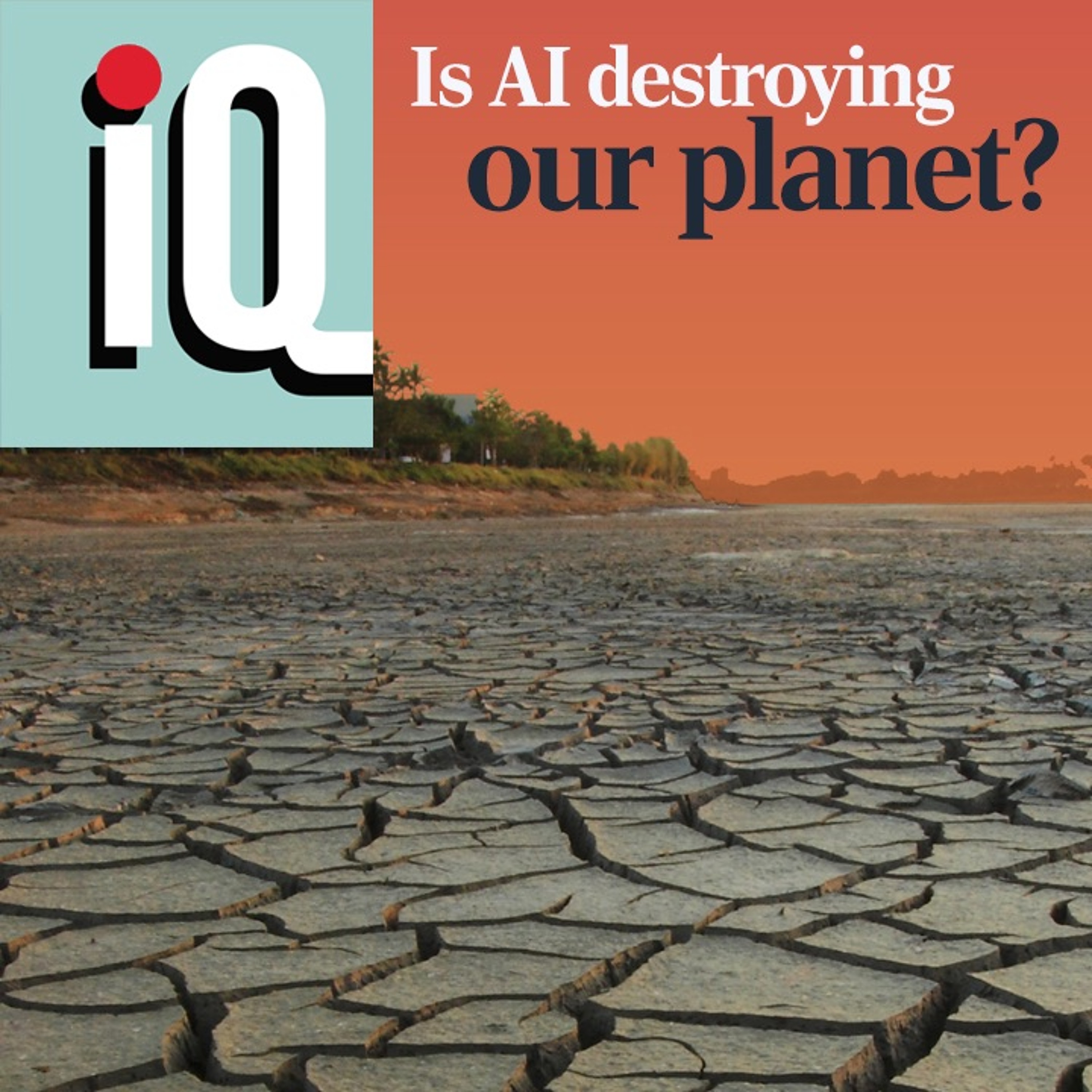 LSE IQ | Intelligent questions with social science answersIs AI destroying the planet?Artificial intelligence is transforming the world around us, offering increased productivity and promising to help tackle difficult problems like global warming.
But behind the scenes, its environmental costs are mounting. From massive energy use to vast quantities of water required to cool data centres, AI’s footprint is growing fast. So, in an age of water scarcity and climate crisis, can we justify this technological boom?
In this episode of LSE iQ, Anna Bevan asks: Is AI destroying the planet?
She travels to a data centre in Slough to find out exactly how data centres work, and speaks to Nick Co...2025-05-0631 min
LSE IQ | Intelligent questions with social science answersIs AI destroying the planet?Artificial intelligence is transforming the world around us, offering increased productivity and promising to help tackle difficult problems like global warming.
But behind the scenes, its environmental costs are mounting. From massive energy use to vast quantities of water required to cool data centres, AI’s footprint is growing fast. So, in an age of water scarcity and climate crisis, can we justify this technological boom?
In this episode of LSE iQ, Anna Bevan asks: Is AI destroying the planet?
She travels to a data centre in Slough to find out exactly how data centres work, and speaks to Nick Co...2025-05-0631 min LSE PodcastsIs AI destroying the planet?Artificial intelligence is transforming the world around us, offering increased productivity and promising to help tackle difficult problems like global warming.
But behind the scenes, its environmental costs are mounting. From massive energy use to vast quantities of water required to cool data centres, AI’s footprint is growing fast. So, in an age of water scarcity and climate crisis, can we justify this technological boom?
In this episode of LSE iQ, Anna Bevan asks: Is AI destroying the planet?
She travels to a data centre in Slough to find out exactly how data centres work, and speaks to Nick Co...2025-05-0631 min
LSE PodcastsIs AI destroying the planet?Artificial intelligence is transforming the world around us, offering increased productivity and promising to help tackle difficult problems like global warming.
But behind the scenes, its environmental costs are mounting. From massive energy use to vast quantities of water required to cool data centres, AI’s footprint is growing fast. So, in an age of water scarcity and climate crisis, can we justify this technological boom?
In this episode of LSE iQ, Anna Bevan asks: Is AI destroying the planet?
She travels to a data centre in Slough to find out exactly how data centres work, and speaks to Nick Co...2025-05-0631 min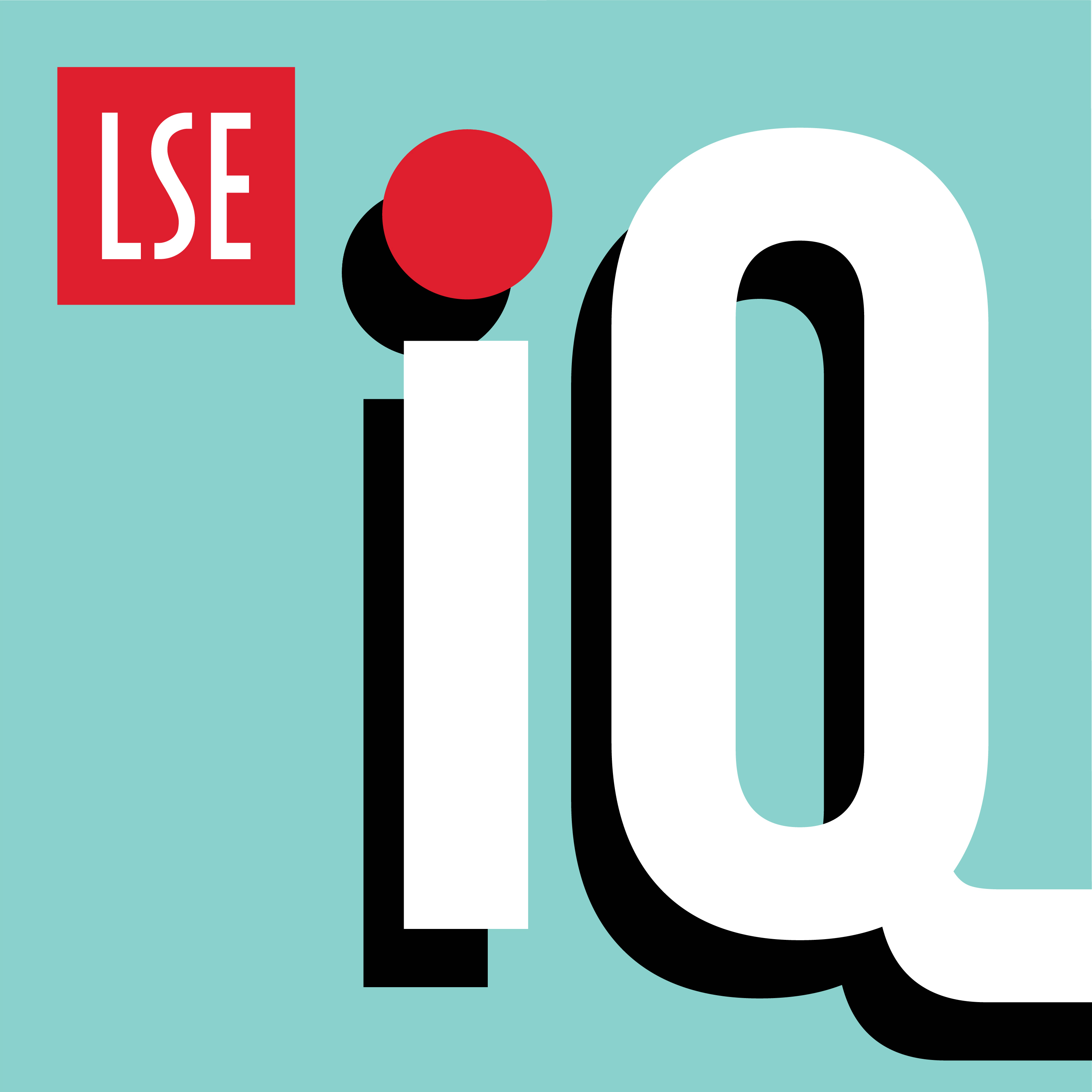 LSE IQ podcastIs AI destroying the planet?Contributor(s): Professor Nick Couldry, Dr Eugenie Dugoua, Ceara Carney | Artificial intelligence is transforming the world around us, offering increased productivity and promising to help tackle difficult problems like global warming.
But behind the scenes, its environmental costs are mounting. From massive energy use to vast quantities of water required to cool data centres, AI’s footprint is growing fast. So, in an age of water scarcity and climate crisis, can we justify this technological boom?
In this episode of LSE iQ, Anna Bevan asks: Is AI destroying the planet?
She travels to a data centre in Slough to find ou...2025-05-0631 min
LSE IQ podcastIs AI destroying the planet?Contributor(s): Professor Nick Couldry, Dr Eugenie Dugoua, Ceara Carney | Artificial intelligence is transforming the world around us, offering increased productivity and promising to help tackle difficult problems like global warming.
But behind the scenes, its environmental costs are mounting. From massive energy use to vast quantities of water required to cool data centres, AI’s footprint is growing fast. So, in an age of water scarcity and climate crisis, can we justify this technological boom?
In this episode of LSE iQ, Anna Bevan asks: Is AI destroying the planet?
She travels to a data centre in Slough to find ou...2025-05-0631 min LSE IQIs AI destroying the planet?Contributor(s): Professor Nick Couldry, Dr Eugenie Dugoua, Ceara Carney | Artificial intelligence is transforming the world around us, offering increased productivity and promising to help tackle difficult problems like global warming.
But behind the scenes, its environmental costs are mounting. From massive energy use to vast quantities of water required to cool data centres, AI’s footprint is growing fast. So, in an age of water scarcity and climate crisis, can we justify this technological boom?
In this episode of LSE iQ, Anna Bevan asks: Is AI destroying the planet?
She travels to a data centre in Slough to find ou...2025-05-0631 min
LSE IQIs AI destroying the planet?Contributor(s): Professor Nick Couldry, Dr Eugenie Dugoua, Ceara Carney | Artificial intelligence is transforming the world around us, offering increased productivity and promising to help tackle difficult problems like global warming.
But behind the scenes, its environmental costs are mounting. From massive energy use to vast quantities of water required to cool data centres, AI’s footprint is growing fast. So, in an age of water scarcity and climate crisis, can we justify this technological boom?
In this episode of LSE iQ, Anna Bevan asks: Is AI destroying the planet?
She travels to a data centre in Slough to find ou...2025-05-0631 min Latest 100 | LSE Public lectures and events | VideoIs AI destroying the planet?Contributor(s): Professor Nick Couldry, Dr Eugenie Dugoua, Ceara Carney | Artificial intelligence is transforming the world around us, offering increased productivity and promising to help tackle difficult problems like global warming.
But behind the scenes, its environmental costs are mounting. From massive energy use to vast quantities of water required to cool data centres, AI’s footprint is growing fast. So, in an age of water scarcity and climate crisis, can we justify this technological boom?
In this episode of LSE iQ, Anna Bevan asks: Is AI destroying the planet?
She travels to a data centre in Slough to find ou...2025-04-0731 min
Latest 100 | LSE Public lectures and events | VideoIs AI destroying the planet?Contributor(s): Professor Nick Couldry, Dr Eugenie Dugoua, Ceara Carney | Artificial intelligence is transforming the world around us, offering increased productivity and promising to help tackle difficult problems like global warming.
But behind the scenes, its environmental costs are mounting. From massive energy use to vast quantities of water required to cool data centres, AI’s footprint is growing fast. So, in an age of water scarcity and climate crisis, can we justify this technological boom?
In this episode of LSE iQ, Anna Bevan asks: Is AI destroying the planet?
She travels to a data centre in Slough to find ou...2025-04-0731 min All items | LSE Public lectures and events | AudioIs AI destroying the planet?Contributor(s): Professor Nick Couldry, Dr Eugenie Dugoua, Ceara Carney | Artificial intelligence is transforming the world around us, offering increased productivity and promising to help tackle difficult problems like global warming.
But behind the scenes, its environmental costs are mounting. From massive energy use to vast quantities of water required to cool data centres, AI’s footprint is growing fast. So, in an age of water scarcity and climate crisis, can we justify this technological boom?
In this episode of LSE iQ, Anna Bevan asks: Is AI destroying the planet?
She travels to a data centre in Slough to find ou...2025-04-0731 min
All items | LSE Public lectures and events | AudioIs AI destroying the planet?Contributor(s): Professor Nick Couldry, Dr Eugenie Dugoua, Ceara Carney | Artificial intelligence is transforming the world around us, offering increased productivity and promising to help tackle difficult problems like global warming.
But behind the scenes, its environmental costs are mounting. From massive energy use to vast quantities of water required to cool data centres, AI’s footprint is growing fast. So, in an age of water scarcity and climate crisis, can we justify this technological boom?
In this episode of LSE iQ, Anna Bevan asks: Is AI destroying the planet?
She travels to a data centre in Slough to find ou...2025-04-0731 min Latest 100 | LSE Public lectures and events | All media typesIs AI destroying the planet?Contributor(s): Professor Nick Couldry, Dr Eugenie Dugoua, Ceara Carney | Artificial intelligence is transforming the world around us, offering increased productivity and promising to help tackle difficult problems like global warming.
But behind the scenes, its environmental costs are mounting. From massive energy use to vast quantities of water required to cool data centres, AI’s footprint is growing fast. So, in an age of water scarcity and climate crisis, can we justify this technological boom?
In this episode of LSE iQ, Anna Bevan asks: Is AI destroying the planet?
She travels to a data centre in Slough to find ou...2025-04-0731 min
Latest 100 | LSE Public lectures and events | All media typesIs AI destroying the planet?Contributor(s): Professor Nick Couldry, Dr Eugenie Dugoua, Ceara Carney | Artificial intelligence is transforming the world around us, offering increased productivity and promising to help tackle difficult problems like global warming.
But behind the scenes, its environmental costs are mounting. From massive energy use to vast quantities of water required to cool data centres, AI’s footprint is growing fast. So, in an age of water scarcity and climate crisis, can we justify this technological boom?
In this episode of LSE iQ, Anna Bevan asks: Is AI destroying the planet?
She travels to a data centre in Slough to find ou...2025-04-0731 min All items | LSE Public lectures and events | All media typesIs AI destroying the planet?Contributor(s): Professor Nick Couldry, Dr Eugenie Dugoua, Ceara Carney | Artificial intelligence is transforming the world around us, offering increased productivity and promising to help tackle difficult problems like global warming.
But behind the scenes, its environmental costs are mounting. From massive energy use to vast quantities of water required to cool data centres, AI’s footprint is growing fast. So, in an age of water scarcity and climate crisis, can we justify this technological boom?
In this episode of LSE iQ, Anna Bevan asks: Is AI destroying the planet?
She travels to a data centre in Slough to find ou...2025-04-0731 min
All items | LSE Public lectures and events | All media typesIs AI destroying the planet?Contributor(s): Professor Nick Couldry, Dr Eugenie Dugoua, Ceara Carney | Artificial intelligence is transforming the world around us, offering increased productivity and promising to help tackle difficult problems like global warming.
But behind the scenes, its environmental costs are mounting. From massive energy use to vast quantities of water required to cool data centres, AI’s footprint is growing fast. So, in an age of water scarcity and climate crisis, can we justify this technological boom?
In this episode of LSE iQ, Anna Bevan asks: Is AI destroying the planet?
She travels to a data centre in Slough to find ou...2025-04-0731 min All items | LSE Public lectures and events | Audio and pdfIs AI destroying the planet?Contributor(s): Professor Nick Couldry, Dr Eugenie Dugoua, Ceara Carney | Artificial intelligence is transforming the world around us, offering increased productivity and promising to help tackle difficult problems like global warming.
But behind the scenes, its environmental costs are mounting. From massive energy use to vast quantities of water required to cool data centres, AI’s footprint is growing fast. So, in an age of water scarcity and climate crisis, can we justify this technological boom?
In this episode of LSE iQ, Anna Bevan asks: Is AI destroying the planet?
She travels to a data centre in Slough to find ou...2025-04-0731 min
All items | LSE Public lectures and events | Audio and pdfIs AI destroying the planet?Contributor(s): Professor Nick Couldry, Dr Eugenie Dugoua, Ceara Carney | Artificial intelligence is transforming the world around us, offering increased productivity and promising to help tackle difficult problems like global warming.
But behind the scenes, its environmental costs are mounting. From massive energy use to vast quantities of water required to cool data centres, AI’s footprint is growing fast. So, in an age of water scarcity and climate crisis, can we justify this technological boom?
In this episode of LSE iQ, Anna Bevan asks: Is AI destroying the planet?
She travels to a data centre in Slough to find ou...2025-04-0731 min Latest 100 | LSE Public lectures and events | AudioIs AI destroying the planet?Contributor(s): Professor Nick Couldry, Dr Eugenie Dugoua, Ceara Carney | Artificial intelligence is transforming the world around us, offering increased productivity and promising to help tackle difficult problems like global warming.
But behind the scenes, its environmental costs are mounting. From massive energy use to vast quantities of water required to cool data centres, AI’s footprint is growing fast. So, in an age of water scarcity and climate crisis, can we justify this technological boom?
In this episode of LSE iQ, Anna Bevan asks: Is AI destroying the planet?
She travels to a data centre in Slough to find ou...2025-04-0731 min
Latest 100 | LSE Public lectures and events | AudioIs AI destroying the planet?Contributor(s): Professor Nick Couldry, Dr Eugenie Dugoua, Ceara Carney | Artificial intelligence is transforming the world around us, offering increased productivity and promising to help tackle difficult problems like global warming.
But behind the scenes, its environmental costs are mounting. From massive energy use to vast quantities of water required to cool data centres, AI’s footprint is growing fast. So, in an age of water scarcity and climate crisis, can we justify this technological boom?
In this episode of LSE iQ, Anna Bevan asks: Is AI destroying the planet?
She travels to a data centre in Slough to find ou...2025-04-0731 min Latest 100 | LSE Public lectures and events | Audio and pdfIs AI destroying the planet?Contributor(s): Professor Nick Couldry, Dr Eugenie Dugoua, Ceara Carney | Artificial intelligence is transforming the world around us, offering increased productivity and promising to help tackle difficult problems like global warming.
But behind the scenes, its environmental costs are mounting. From massive energy use to vast quantities of water required to cool data centres, AI’s footprint is growing fast. So, in an age of water scarcity and climate crisis, can we justify this technological boom?
In this episode of LSE iQ, Anna Bevan asks: Is AI destroying the planet?
She travels to a data centre in Slough to find ou...2025-04-0731 min
Latest 100 | LSE Public lectures and events | Audio and pdfIs AI destroying the planet?Contributor(s): Professor Nick Couldry, Dr Eugenie Dugoua, Ceara Carney | Artificial intelligence is transforming the world around us, offering increased productivity and promising to help tackle difficult problems like global warming.
But behind the scenes, its environmental costs are mounting. From massive energy use to vast quantities of water required to cool data centres, AI’s footprint is growing fast. So, in an age of water scarcity and climate crisis, can we justify this technological boom?
In this episode of LSE iQ, Anna Bevan asks: Is AI destroying the planet?
She travels to a data centre in Slough to find ou...2025-04-0731 min Latest 300 | LSE Public lectures and events | VideoIs AI destroying the planet?Contributor(s): Professor Nick Couldry, Dr Eugenie Dugoua, Ceara Carney | Artificial intelligence is transforming the world around us, offering increased productivity and promising to help tackle difficult problems like global warming.
But behind the scenes, its environmental costs are mounting. From massive energy use to vast quantities of water required to cool data centres, AI’s footprint is growing fast. So, in an age of water scarcity and climate crisis, can we justify this technological boom?
In this episode of LSE iQ, Anna Bevan asks: Is AI destroying the planet?
She travels to a data centre in Slough to find ou...2025-04-0731 min
Latest 300 | LSE Public lectures and events | VideoIs AI destroying the planet?Contributor(s): Professor Nick Couldry, Dr Eugenie Dugoua, Ceara Carney | Artificial intelligence is transforming the world around us, offering increased productivity and promising to help tackle difficult problems like global warming.
But behind the scenes, its environmental costs are mounting. From massive energy use to vast quantities of water required to cool data centres, AI’s footprint is growing fast. So, in an age of water scarcity and climate crisis, can we justify this technological boom?
In this episode of LSE iQ, Anna Bevan asks: Is AI destroying the planet?
She travels to a data centre in Slough to find ou...2025-04-0731 min Techtonic with Mark Hurst | WFMUNick Couldry, author, "The Space of the World" from Feb 17, 2025
Nick Couldry, author of “The Space of the World,” on how social media is driving us crazy
Tomaš Dvořák - "Gameboy Tune"
- "Mark's intro"
- "Interview with Nick Couldry" [0:05:07]
- "Mark's comments" [0:45:40]
Carlo Patrão - "Kaizen" [0:54:43]
https://www.wfmu.org/playlists/shows/149244
2025-02-1800 min
Techtonic with Mark Hurst | WFMUNick Couldry, author, "The Space of the World" from Feb 17, 2025
Nick Couldry, author of “The Space of the World,” on how social media is driving us crazy
Tomaš Dvořák - "Gameboy Tune"
- "Mark's intro"
- "Interview with Nick Couldry" [0:05:07]
- "Mark's comments" [0:45:40]
Carlo Patrão - "Kaizen" [0:54:43]
https://www.wfmu.org/playlists/shows/149244
2025-02-1800 min Techtonic with Mark Hurst | WFMUNick Couldry, author, "The Space of the World" from Feb 17, 2025
Nick Couldry, author of “The Space of the World,” on how social media is driving us crazy
Tomaš Dvořák - "Gameboy Tune"
- "Mark's intro"
- "Interview with Nick Couldry" [0:05:07]
- "Mark's comments" [0:45:40]
Carlo Patrão - "Kaizen" [0:54:43]
https://freeform.wfmu.org/playlists/shows/149244
2025-02-1800 min
Techtonic with Mark Hurst | WFMUNick Couldry, author, "The Space of the World" from Feb 17, 2025
Nick Couldry, author of “The Space of the World,” on how social media is driving us crazy
Tomaš Dvořák - "Gameboy Tune"
- "Mark's intro"
- "Interview with Nick Couldry" [0:05:07]
- "Mark's comments" [0:45:40]
Carlo Patrão - "Kaizen" [0:54:43]
https://freeform.wfmu.org/playlists/shows/149244
2025-02-1800 min Homebrewed ChristianityThe New Colonialism: Power, Data, and the Transformation of Human ExperienceThis is an audio version of an essay on my substack, Process This. The essay explores how digital platforms have transformed human experience into a new form of colonialism. It discusses the historical evolution of the internet from a decentralized space to one controlled by tech giants, and highlights the data extraction, surveillance, and algorithmic governance that dominate modern digital spaces. By drawing parallels to historical colonialism, the essay outlines the systematic ways in which platforms explore, expand, exploit, and exterminate alternative ways of being social. It also examines the rise of a new digital aristocracy in Silicon Valley...2025-02-1332 min
Homebrewed ChristianityThe New Colonialism: Power, Data, and the Transformation of Human ExperienceThis is an audio version of an essay on my substack, Process This. The essay explores how digital platforms have transformed human experience into a new form of colonialism. It discusses the historical evolution of the internet from a decentralized space to one controlled by tech giants, and highlights the data extraction, surveillance, and algorithmic governance that dominate modern digital spaces. By drawing parallels to historical colonialism, the essay outlines the systematic ways in which platforms explore, expand, exploit, and exterminate alternative ways of being social. It also examines the rise of a new digital aristocracy in Silicon Valley...2025-02-1332 min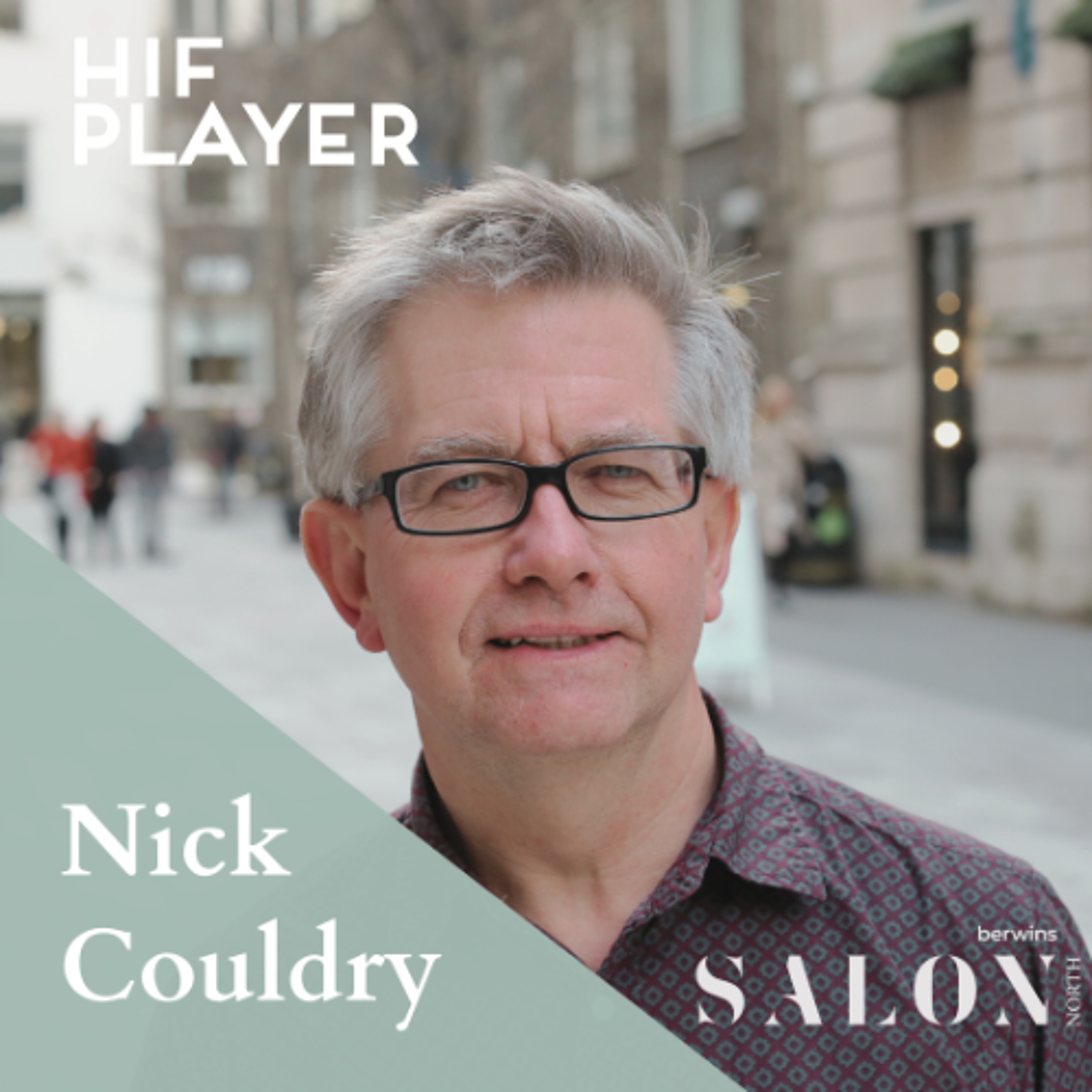 HIF PlayerBerwins Salon North - Nick CouldryThis week on HIF player we learn all about connections with Nick Couldry, recorded live at Berwins Salon North.
In this compelling and urgent podcast, Nick Couldry argues that Big Tech is quietly seizing control over our most valuable resource – our personal data. This isn’t just about privacy; it’s about how your data is being used to shape your behaviour, your choices, and even your future. Nick explains how we ended up here and, more importantly, what we can do about it.
Podcast Music by Joseph McDade.2025-01-2323 min
HIF PlayerBerwins Salon North - Nick CouldryThis week on HIF player we learn all about connections with Nick Couldry, recorded live at Berwins Salon North.
In this compelling and urgent podcast, Nick Couldry argues that Big Tech is quietly seizing control over our most valuable resource – our personal data. This isn’t just about privacy; it’s about how your data is being used to shape your behaviour, your choices, and even your future. Nick explains how we ended up here and, more importantly, what we can do about it.
Podcast Music by Joseph McDade.2025-01-2323 min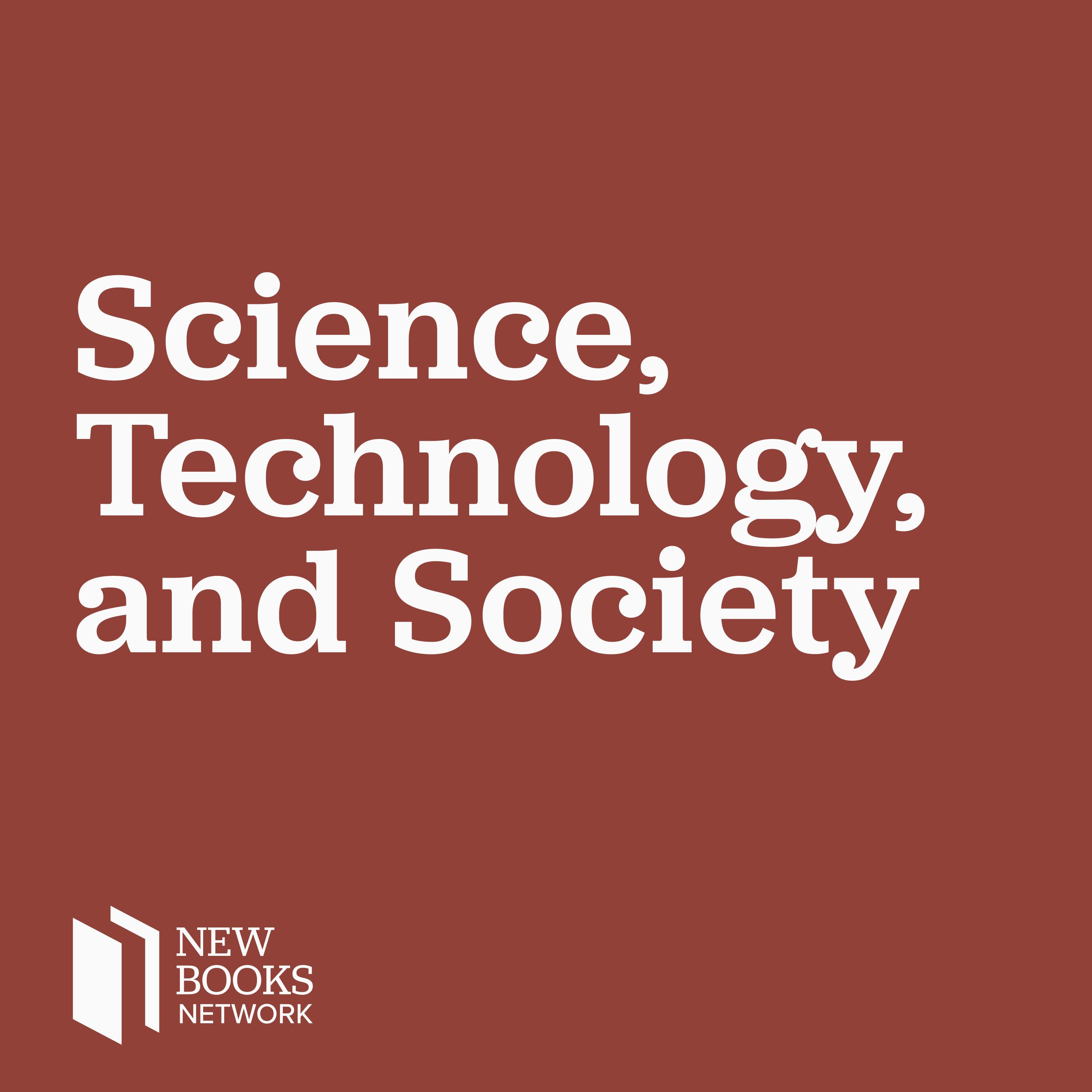 New Books in Science, Technology, and SocietyNick Couldry, "The Space of the World: Can Human Solidarity Survive Social Media and What If It Can't?" (Polity, 2024)Is human solidarity achievable in a world dominated by continuous digital connectivity and commercially managed platforms? And what if it’s not? Professor Nick Couldry explores these urgent questions in his latest book, The Space of the World: Can Human Solidarity Survive Social Media and What If It Can’t? (Polity, 2024), as discussed in a recent interview with the New Books Network.In a conversation with Joanne Kuai, Couldry reflects on how society has ceded critical decisions to Big Tech, enabling these companies to construct what he calls our "space of the world"—the artificial environment of social medi...2024-12-2338 min
New Books in Science, Technology, and SocietyNick Couldry, "The Space of the World: Can Human Solidarity Survive Social Media and What If It Can't?" (Polity, 2024)Is human solidarity achievable in a world dominated by continuous digital connectivity and commercially managed platforms? And what if it’s not? Professor Nick Couldry explores these urgent questions in his latest book, The Space of the World: Can Human Solidarity Survive Social Media and What If It Can’t? (Polity, 2024), as discussed in a recent interview with the New Books Network.In a conversation with Joanne Kuai, Couldry reflects on how society has ceded critical decisions to Big Tech, enabling these companies to construct what he calls our "space of the world"—the artificial environment of social medi...2024-12-2338 min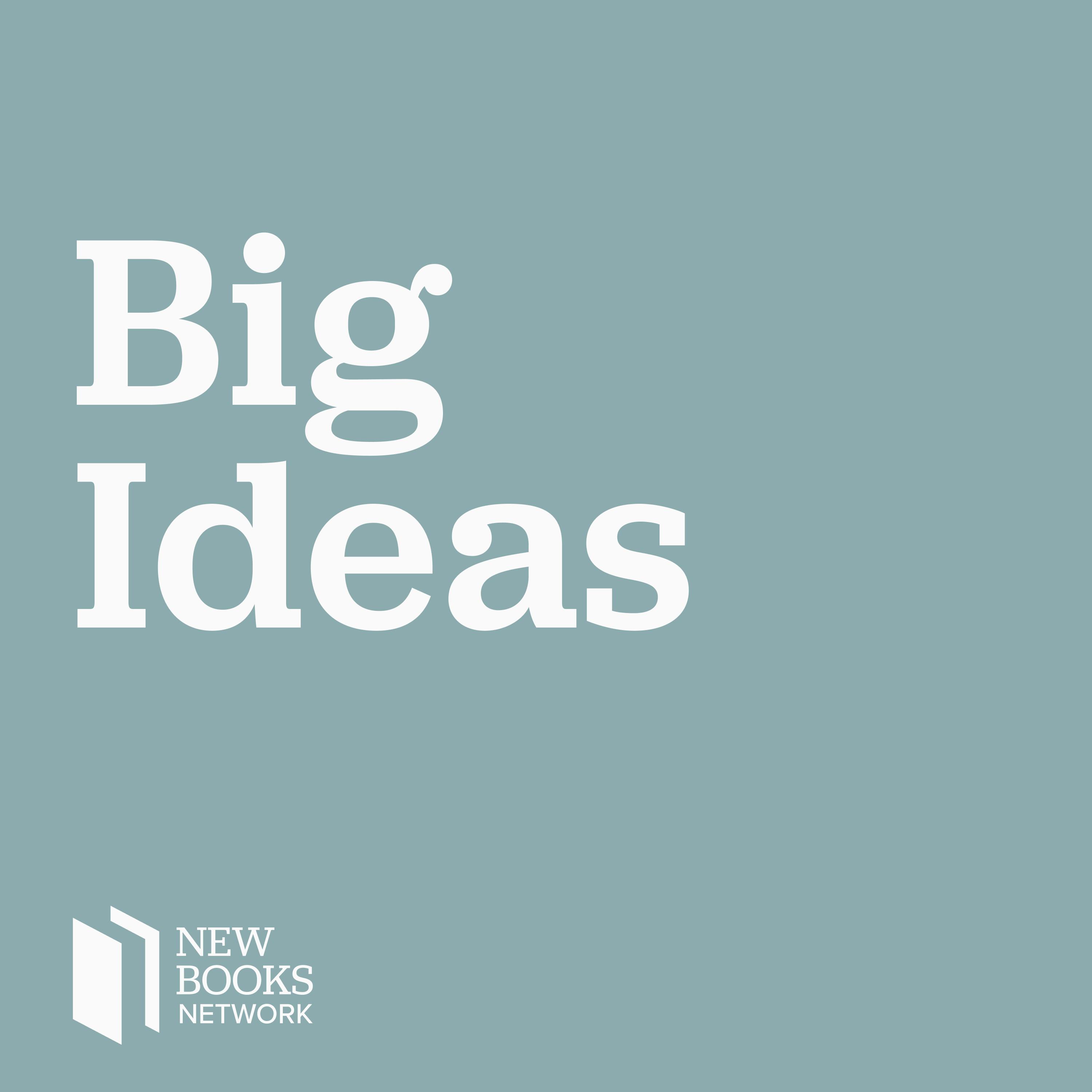 New Books in Big IdeasNick Couldry, "The Space of the World: Can Human Solidarity Survive Social Media and What If It Can't?" (Polity, 2024)Is human solidarity achievable in a world dominated by continuous digital connectivity and commercially managed platforms? And what if it’s not? Professor Nick Couldry explores these urgent questions in his latest book, The Space of the World: Can Human Solidarity Survive Social Media and What If It Can’t? (Polity, 2024), as discussed in a recent interview with the New Books Network.In a conversation with Joanne Kuai, Couldry reflects on how society has ceded critical decisions to Big Tech, enabling these companies to construct what he calls our "space of the world"—the artificial environment of social medi...2024-12-2336 min
New Books in Big IdeasNick Couldry, "The Space of the World: Can Human Solidarity Survive Social Media and What If It Can't?" (Polity, 2024)Is human solidarity achievable in a world dominated by continuous digital connectivity and commercially managed platforms? And what if it’s not? Professor Nick Couldry explores these urgent questions in his latest book, The Space of the World: Can Human Solidarity Survive Social Media and What If It Can’t? (Polity, 2024), as discussed in a recent interview with the New Books Network.In a conversation with Joanne Kuai, Couldry reflects on how society has ceded critical decisions to Big Tech, enabling these companies to construct what he calls our "space of the world"—the artificial environment of social medi...2024-12-2336 min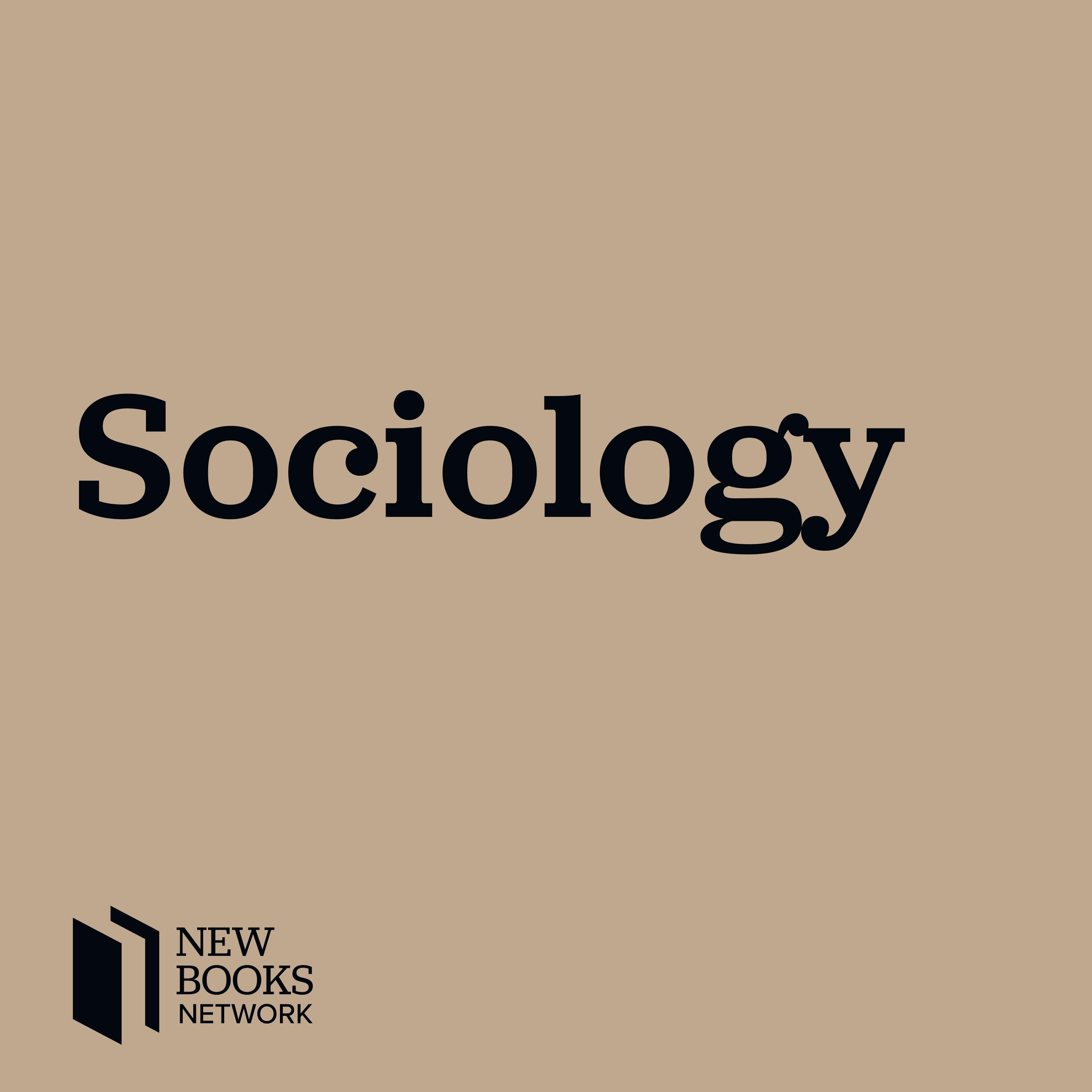 New Books in SociologyNick Couldry, "The Space of the World: Can Human Solidarity Survive Social Media and What If It Can't?" (Polity, 2024)Is human solidarity achievable in a world dominated by continuous digital connectivity and commercially managed platforms? And what if it’s not? Professor Nick Couldry explores these urgent questions in his latest book, The Space of the World: Can Human Solidarity Survive Social Media and What If It Can’t? (Polity, 2024), as discussed in a recent interview with the New Books Network.In a conversation with Joanne Kuai, Couldry reflects on how society has ceded critical decisions to Big Tech, enabling these companies to construct what he calls our "space of the world"—the artificial environment of social medi...2024-12-2338 min
New Books in SociologyNick Couldry, "The Space of the World: Can Human Solidarity Survive Social Media and What If It Can't?" (Polity, 2024)Is human solidarity achievable in a world dominated by continuous digital connectivity and commercially managed platforms? And what if it’s not? Professor Nick Couldry explores these urgent questions in his latest book, The Space of the World: Can Human Solidarity Survive Social Media and What If It Can’t? (Polity, 2024), as discussed in a recent interview with the New Books Network.In a conversation with Joanne Kuai, Couldry reflects on how society has ceded critical decisions to Big Tech, enabling these companies to construct what he calls our "space of the world"—the artificial environment of social medi...2024-12-2338 min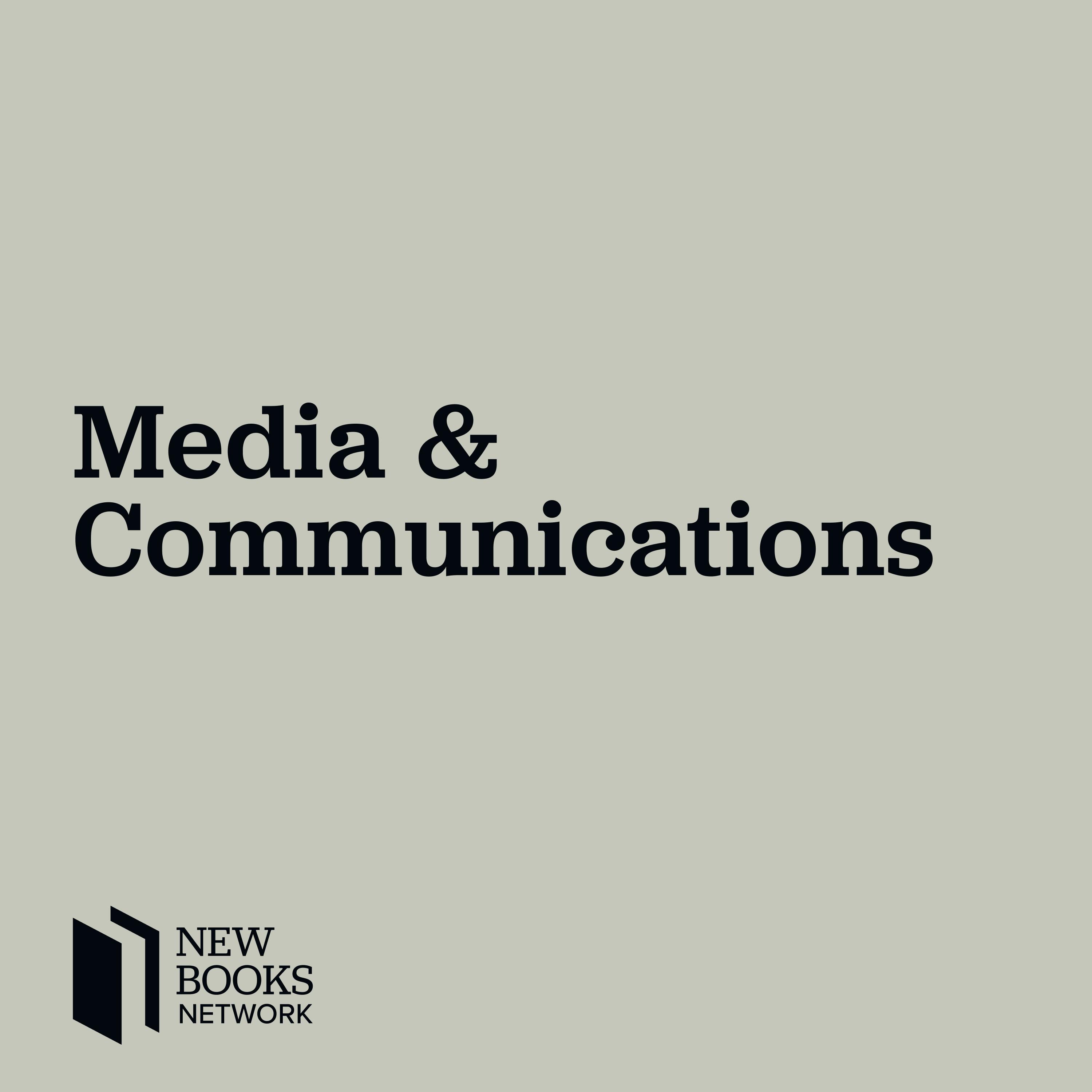 New Books in CommunicationsNick Couldry, "The Space of the World: Can Human Solidarity Survive Social Media and What If It Can't?" (Polity, 2024)Is human solidarity achievable in a world dominated by continuous digital connectivity and commercially managed platforms? And what if it’s not? Professor Nick Couldry explores these urgent questions in his latest book, The Space of the World: Can Human Solidarity Survive Social Media and What If It Can’t? (Polity, 2024), as discussed in a recent interview with the New Books Network.In a conversation with Joanne Kuai, Couldry reflects on how society has ceded critical decisions to Big Tech, enabling these companies to construct what he calls our "space of the world"—the artificial environment of social medi...2024-12-2338 min
New Books in CommunicationsNick Couldry, "The Space of the World: Can Human Solidarity Survive Social Media and What If It Can't?" (Polity, 2024)Is human solidarity achievable in a world dominated by continuous digital connectivity and commercially managed platforms? And what if it’s not? Professor Nick Couldry explores these urgent questions in his latest book, The Space of the World: Can Human Solidarity Survive Social Media and What If It Can’t? (Polity, 2024), as discussed in a recent interview with the New Books Network.In a conversation with Joanne Kuai, Couldry reflects on how society has ceded critical decisions to Big Tech, enabling these companies to construct what he calls our "space of the world"—the artificial environment of social medi...2024-12-2338 min New Books in Politics and PolemicsNick Couldry, "The Space of the World: Can Human Solidarity Survive Social Media and What If It Can't?" (Polity, 2024)Is human solidarity achievable in a world dominated by continuous digital connectivity and commercially managed platforms? And what if it’s not? Professor Nick Couldry explores these urgent questions in his latest book, The Space of the World: Can Human Solidarity Survive Social Media and What If It Can’t? (Polity, 2024), as discussed in a recent interview with the New Books Network.In a conversation with Joanne Kuai, Couldry reflects on how society has ceded critical decisions to Big Tech, enabling these companies to construct what he calls our "space of the world"—the artificial environment of social medi...2024-12-2338 min
New Books in Politics and PolemicsNick Couldry, "The Space of the World: Can Human Solidarity Survive Social Media and What If It Can't?" (Polity, 2024)Is human solidarity achievable in a world dominated by continuous digital connectivity and commercially managed platforms? And what if it’s not? Professor Nick Couldry explores these urgent questions in his latest book, The Space of the World: Can Human Solidarity Survive Social Media and What If It Can’t? (Polity, 2024), as discussed in a recent interview with the New Books Network.In a conversation with Joanne Kuai, Couldry reflects on how society has ceded critical decisions to Big Tech, enabling these companies to construct what he calls our "space of the world"—the artificial environment of social medi...2024-12-2338 min New Books in Critical TheoryNick Couldry, "The Space of the World: Can Human Solidarity Survive Social Media and What If It Can't?" (Polity, 2024)Is human solidarity achievable in a world dominated by continuous digital connectivity and commercially managed platforms? And what if it’s not? Professor Nick Couldry explores these urgent questions in his latest book, The Space of the World: Can Human Solidarity Survive Social Media and What If It Can’t? (Polity, 2024), as discussed in a recent interview with the New Books Network.In a conversation with Joanne Kuai, Couldry reflects on how society has ceded critical decisions to Big Tech, enabling these companies to construct what he calls our "space of the world"—the artificial environment of social medi...2024-12-2338 min
New Books in Critical TheoryNick Couldry, "The Space of the World: Can Human Solidarity Survive Social Media and What If It Can't?" (Polity, 2024)Is human solidarity achievable in a world dominated by continuous digital connectivity and commercially managed platforms? And what if it’s not? Professor Nick Couldry explores these urgent questions in his latest book, The Space of the World: Can Human Solidarity Survive Social Media and What If It Can’t? (Polity, 2024), as discussed in a recent interview with the New Books Network.In a conversation with Joanne Kuai, Couldry reflects on how society has ceded critical decisions to Big Tech, enabling these companies to construct what he calls our "space of the world"—the artificial environment of social medi...2024-12-2338 min New Books in Political ScienceNick Couldry, "The Space of the World: Can Human Solidarity Survive Social Media and What If It Can't?" (Polity, 2024)Is human solidarity achievable in a world dominated by continuous digital connectivity and commercially managed platforms? And what if it’s not? Professor Nick Couldry explores these urgent questions in his latest book, The Space of the World: Can Human Solidarity Survive Social Media and What If It Can’t? (Polity, 2024), as discussed in a recent interview with the New Books Network.In a conversation with Joanne Kuai, Couldry reflects on how society has ceded critical decisions to Big Tech, enabling these companies to construct what he calls our "space of the world"—the artificial environment of social medi...2024-12-2338 min
New Books in Political ScienceNick Couldry, "The Space of the World: Can Human Solidarity Survive Social Media and What If It Can't?" (Polity, 2024)Is human solidarity achievable in a world dominated by continuous digital connectivity and commercially managed platforms? And what if it’s not? Professor Nick Couldry explores these urgent questions in his latest book, The Space of the World: Can Human Solidarity Survive Social Media and What If It Can’t? (Polity, 2024), as discussed in a recent interview with the New Books Network.In a conversation with Joanne Kuai, Couldry reflects on how society has ceded critical decisions to Big Tech, enabling these companies to construct what he calls our "space of the world"—the artificial environment of social medi...2024-12-2338 min New Books in Politics and PolemicsUlises Ali Mejias and Nick Couldry, "Data Grab: The New Colonialism of Big Tech and How to Fight Back" (U Chicago Press, 2024)In the present day, Big Tech is extracting resources from us, transferring and centralizing resources from people to companies. These companies are grabbing our most basic natural resources--our data--exploiting our labor and connections, and repackaging our information to control our views, track our movements, record our conversations, and discriminate against us. These companies tell us this is for our own good, to build innovation and develop new technology. But in fact, every time we unthinkingly click "Accept" on a set of Terms and Conditions, we allow our most personal information to be kept indefinitely, repackaged by companies to control...2024-12-211h 02
New Books in Politics and PolemicsUlises Ali Mejias and Nick Couldry, "Data Grab: The New Colonialism of Big Tech and How to Fight Back" (U Chicago Press, 2024)In the present day, Big Tech is extracting resources from us, transferring and centralizing resources from people to companies. These companies are grabbing our most basic natural resources--our data--exploiting our labor and connections, and repackaging our information to control our views, track our movements, record our conversations, and discriminate against us. These companies tell us this is for our own good, to build innovation and develop new technology. But in fact, every time we unthinkingly click "Accept" on a set of Terms and Conditions, we allow our most personal information to be kept indefinitely, repackaged by companies to control...2024-12-211h 02 New Books in CommunicationsUlises Ali Mejias and Nick Couldry, "Data Grab: The New Colonialism of Big Tech and How to Fight Back" (U Chicago Press, 2024)In the present day, Big Tech is extracting resources from us, transferring and centralizing resources from people to companies. These companies are grabbing our most basic natural resources--our data--exploiting our labor and connections, and repackaging our information to control our views, track our movements, record our conversations, and discriminate against us. These companies tell us this is for our own good, to build innovation and develop new technology. But in fact, every time we unthinkingly click "Accept" on a set of Terms and Conditions, we allow our most personal information to be kept indefinitely, repackaged by companies to control...2024-12-211h 02
New Books in CommunicationsUlises Ali Mejias and Nick Couldry, "Data Grab: The New Colonialism of Big Tech and How to Fight Back" (U Chicago Press, 2024)In the present day, Big Tech is extracting resources from us, transferring and centralizing resources from people to companies. These companies are grabbing our most basic natural resources--our data--exploiting our labor and connections, and repackaging our information to control our views, track our movements, record our conversations, and discriminate against us. These companies tell us this is for our own good, to build innovation and develop new technology. But in fact, every time we unthinkingly click "Accept" on a set of Terms and Conditions, we allow our most personal information to be kept indefinitely, repackaged by companies to control...2024-12-211h 02 The University of Chicago Press PodcastUlises Ali Mejias and Nick Couldry, "Data Grab: The New Colonialism of Big Tech and How to Fight Back" (U Chicago Press, 2024)In the present day, Big Tech is extracting resources from us, transferring and centralizing resources from people to companies. These companies are grabbing our most basic natural resources--our data--exploiting our labor and connections, and repackaging our information to control our views, track our movements, record our conversations, and discriminate against us. These companies tell us this is for our own good, to build innovation and develop new technology. But in fact, every time we unthinkingly click "Accept" on a set of Terms and Conditions, we allow our most personal information to be kept indefinitely, repackaged by companies to control...2024-12-211h 02
The University of Chicago Press PodcastUlises Ali Mejias and Nick Couldry, "Data Grab: The New Colonialism of Big Tech and How to Fight Back" (U Chicago Press, 2024)In the present day, Big Tech is extracting resources from us, transferring and centralizing resources from people to companies. These companies are grabbing our most basic natural resources--our data--exploiting our labor and connections, and repackaging our information to control our views, track our movements, record our conversations, and discriminate against us. These companies tell us this is for our own good, to build innovation and develop new technology. But in fact, every time we unthinkingly click "Accept" on a set of Terms and Conditions, we allow our most personal information to be kept indefinitely, repackaged by companies to control...2024-12-211h 02 New Books in EconomicsUlises Ali Mejias and Nick Couldry, "Data Grab: The New Colonialism of Big Tech and How to Fight Back" (U Chicago Press, 2024)In the present day, Big Tech is extracting resources from us, transferring and centralizing resources from people to companies. These companies are grabbing our most basic natural resources--our data--exploiting our labor and connections, and repackaging our information to control our views, track our movements, record our conversations, and discriminate against us. These companies tell us this is for our own good, to build innovation and develop new technology. But in fact, every time we unthinkingly click "Accept" on a set of Terms and Conditions, we allow our most personal information to be kept indefinitely, repackaged by companies to control...2024-12-211h 02
New Books in EconomicsUlises Ali Mejias and Nick Couldry, "Data Grab: The New Colonialism of Big Tech and How to Fight Back" (U Chicago Press, 2024)In the present day, Big Tech is extracting resources from us, transferring and centralizing resources from people to companies. These companies are grabbing our most basic natural resources--our data--exploiting our labor and connections, and repackaging our information to control our views, track our movements, record our conversations, and discriminate against us. These companies tell us this is for our own good, to build innovation and develop new technology. But in fact, every time we unthinkingly click "Accept" on a set of Terms and Conditions, we allow our most personal information to be kept indefinitely, repackaged by companies to control...2024-12-211h 02 New Books in Science, Technology, and SocietyUlises Ali Mejias and Nick Couldry, "Data Grab: The New Colonialism of Big Tech and How to Fight Back" (U Chicago Press, 2024)In the present day, Big Tech is extracting resources from us, transferring and centralizing resources from people to companies. These companies are grabbing our most basic natural resources--our data--exploiting our labor and connections, and repackaging our information to control our views, track our movements, record our conversations, and discriminate against us. These companies tell us this is for our own good, to build innovation and develop new technology. But in fact, every time we unthinkingly click "Accept" on a set of Terms and Conditions, we allow our most personal information to be kept indefinitely, repackaged by companies to control...2024-12-211h 02
New Books in Science, Technology, and SocietyUlises Ali Mejias and Nick Couldry, "Data Grab: The New Colonialism of Big Tech and How to Fight Back" (U Chicago Press, 2024)In the present day, Big Tech is extracting resources from us, transferring and centralizing resources from people to companies. These companies are grabbing our most basic natural resources--our data--exploiting our labor and connections, and repackaging our information to control our views, track our movements, record our conversations, and discriminate against us. These companies tell us this is for our own good, to build innovation and develop new technology. But in fact, every time we unthinkingly click "Accept" on a set of Terms and Conditions, we allow our most personal information to be kept indefinitely, repackaged by companies to control...2024-12-211h 02 New Books in Critical TheoryUlises Ali Mejias and Nick Couldry, "Data Grab: The New Colonialism of Big Tech and How to Fight Back" (U Chicago Press, 2024)In the present day, Big Tech is extracting resources from us, transferring and centralizing resources from people to companies. These companies are grabbing our most basic natural resources--our data--exploiting our labor and connections, and repackaging our information to control our views, track our movements, record our conversations, and discriminate against us. These companies tell us this is for our own good, to build innovation and develop new technology. But in fact, every time we unthinkingly click "Accept" on a set of Terms and Conditions, we allow our most personal information to be kept indefinitely, repackaged by companies to control...2024-12-211h 02
New Books in Critical TheoryUlises Ali Mejias and Nick Couldry, "Data Grab: The New Colonialism of Big Tech and How to Fight Back" (U Chicago Press, 2024)In the present day, Big Tech is extracting resources from us, transferring and centralizing resources from people to companies. These companies are grabbing our most basic natural resources--our data--exploiting our labor and connections, and repackaging our information to control our views, track our movements, record our conversations, and discriminate against us. These companies tell us this is for our own good, to build innovation and develop new technology. But in fact, every time we unthinkingly click "Accept" on a set of Terms and Conditions, we allow our most personal information to be kept indefinitely, repackaged by companies to control...2024-12-211h 02 New Books in Public PolicyUlises Ali Mejias and Nick Couldry, "Data Grab: The New Colonialism of Big Tech and How to Fight Back" (U Chicago Press, 2024)In the present day, Big Tech is extracting resources from us, transferring and centralizing resources from people to companies. These companies are grabbing our most basic natural resources--our data--exploiting our labor and connections, and repackaging our information to control our views, track our movements, record our conversations, and discriminate against us. These companies tell us this is for our own good, to build innovation and develop new technology. But in fact, every time we unthinkingly click "Accept" on a set of Terms and Conditions, we allow our most personal information to be kept indefinitely, repackaged by companies to control...2024-12-211h 02
New Books in Public PolicyUlises Ali Mejias and Nick Couldry, "Data Grab: The New Colonialism of Big Tech and How to Fight Back" (U Chicago Press, 2024)In the present day, Big Tech is extracting resources from us, transferring and centralizing resources from people to companies. These companies are grabbing our most basic natural resources--our data--exploiting our labor and connections, and repackaging our information to control our views, track our movements, record our conversations, and discriminate against us. These companies tell us this is for our own good, to build innovation and develop new technology. But in fact, every time we unthinkingly click "Accept" on a set of Terms and Conditions, we allow our most personal information to be kept indefinitely, repackaged by companies to control...2024-12-211h 02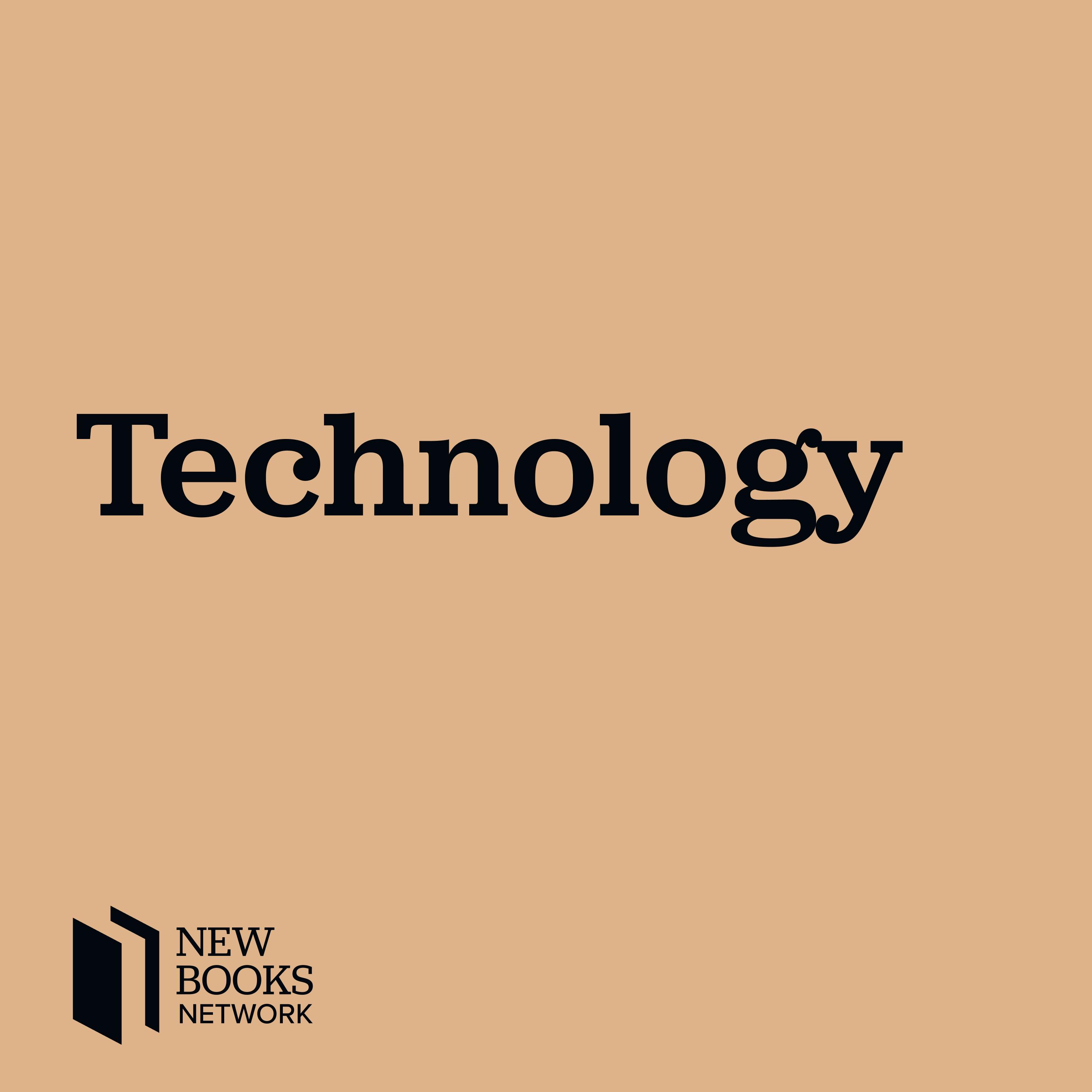 New Books in TechnologyUlises Ali Mejias and Nick Couldry, "Data Grab: The New Colonialism of Big Tech and How to Fight Back" (U Chicago Press, 2024)In the present day, Big Tech is extracting resources from us, transferring and centralizing resources from people to companies. These companies are grabbing our most basic natural resources--our data--exploiting our labor and connections, and repackaging our information to control our views, track our movements, record our conversations, and discriminate against us. These companies tell us this is for our own good, to build innovation and develop new technology. But in fact, every time we unthinkingly click "Accept" on a set of Terms and Conditions, we allow our most personal information to be kept indefinitely, repackaged by companies to control...2024-12-211h 02
New Books in TechnologyUlises Ali Mejias and Nick Couldry, "Data Grab: The New Colonialism of Big Tech and How to Fight Back" (U Chicago Press, 2024)In the present day, Big Tech is extracting resources from us, transferring and centralizing resources from people to companies. These companies are grabbing our most basic natural resources--our data--exploiting our labor and connections, and repackaging our information to control our views, track our movements, record our conversations, and discriminate against us. These companies tell us this is for our own good, to build innovation and develop new technology. But in fact, every time we unthinkingly click "Accept" on a set of Terms and Conditions, we allow our most personal information to be kept indefinitely, repackaged by companies to control...2024-12-211h 02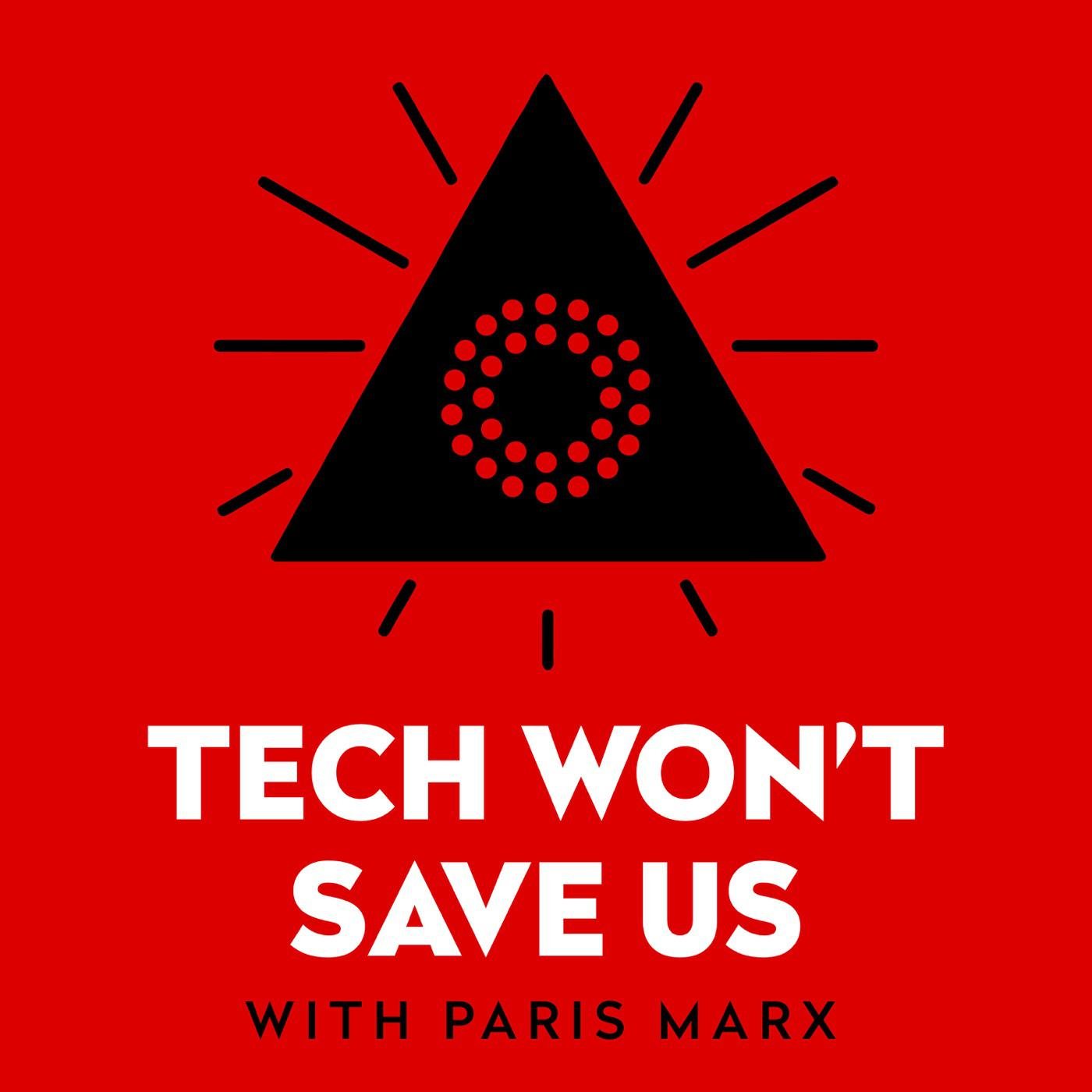 The MachinistThe Threat of Data Colonialism w/ Ulises A. Mejias & Nick Couldry Podcast: Tech Won't Save Us (LS 57 · TOP 0.5% what is this?)Episode: The Threat of Data Colonialism w/ Ulises A. Mejias & Nick CouldryPub date: 2024-10-24Get Podcast Transcript →powered by Listen411 - fast audio-to-text and summarizationParis Marx is joined by Ulises A. Mejias and Nick Couldry to discuss how Silicon Valley's extractive data collection regime and the power it grants them resembles a much older form of exploitation: colonialism.Ulises A. Mejias is a professor of Communication Studies at SUNY Oswego and Nick Couldry is a pro...2024-10-301h 00
The MachinistThe Threat of Data Colonialism w/ Ulises A. Mejias & Nick Couldry Podcast: Tech Won't Save Us (LS 57 · TOP 0.5% what is this?)Episode: The Threat of Data Colonialism w/ Ulises A. Mejias & Nick CouldryPub date: 2024-10-24Get Podcast Transcript →powered by Listen411 - fast audio-to-text and summarizationParis Marx is joined by Ulises A. Mejias and Nick Couldry to discuss how Silicon Valley's extractive data collection regime and the power it grants them resembles a much older form of exploitation: colonialism.Ulises A. Mejias is a professor of Communication Studies at SUNY Oswego and Nick Couldry is a pro...2024-10-301h 00 The Nation PodcastsThe Threat of Data Colonialism w/ Ulises A. Mejias & Nick Couldry | Tech Won't Save UsOn this episode of Tech Won't Save Us, Paris Marx is joined by Ulises A. Mejias and Nick Couldry to discuss how Silicon Valley's extractive data collection regime and the power it grants them resembles a much older form of exploitation: colonialism.Ulises A. Mejias is a professor of Communication Studies at SUNY Oswego and Nick Couldry is a professor of Media, Communications and Social Theory at the London School of Economics. They are the co-authors of Data Grab: The New Colonialism of Big Tech and How to Fight Back and among the co-founders of the network Tie...2024-10-241h 00
The Nation PodcastsThe Threat of Data Colonialism w/ Ulises A. Mejias & Nick Couldry | Tech Won't Save UsOn this episode of Tech Won't Save Us, Paris Marx is joined by Ulises A. Mejias and Nick Couldry to discuss how Silicon Valley's extractive data collection regime and the power it grants them resembles a much older form of exploitation: colonialism.Ulises A. Mejias is a professor of Communication Studies at SUNY Oswego and Nick Couldry is a professor of Media, Communications and Social Theory at the London School of Economics. They are the co-authors of Data Grab: The New Colonialism of Big Tech and How to Fight Back and among the co-founders of the network Tie...2024-10-241h 00 Tech Won't Save UsThe Threat of Data Colonialism w/ Ulises A. Mejias & Nick CouldryParis Marx is joined by Ulises A. Mejias and Nick Couldry to discuss how Silicon Valley's extractive data collection regime and the power it grants them resembles a much older form of exploitation: colonialism.Ulises A. Mejias is a professor of Communication Studies at SUNY Oswego and Nick Couldry is a professor of Media, Communications and Social Theory at the London School of Economics. They are the co-authors of Data Grab: The New Colonialism of Big Tech and How to Fight Back and among the co-founders of the network Tierra Común.Tech Won’t Sav...2024-10-241h 00
Tech Won't Save UsThe Threat of Data Colonialism w/ Ulises A. Mejias & Nick CouldryParis Marx is joined by Ulises A. Mejias and Nick Couldry to discuss how Silicon Valley's extractive data collection regime and the power it grants them resembles a much older form of exploitation: colonialism.Ulises A. Mejias is a professor of Communication Studies at SUNY Oswego and Nick Couldry is a professor of Media, Communications and Social Theory at the London School of Economics. They are the co-authors of Data Grab: The New Colonialism of Big Tech and How to Fight Back and among the co-founders of the network Tierra Común.Tech Won’t Sav...2024-10-241h 00 culturalstudiesNick Couldry on his new book The Space of the WorldNick Couldry on his new book The Space of the World: Can Human Solidarity Survive Social Media and What If It Can’t?
You can read about it here:
2024-10-2355 min
culturalstudiesNick Couldry on his new book The Space of the WorldNick Couldry on his new book The Space of the World: Can Human Solidarity Survive Social Media and What If It Can’t?
You can read about it here:
2024-10-2355 min RAT.HUB | Dein Startup PodcastNick Couldry | LSEToday, I am very honoured to be joined by a special guest. Nick Couldry. He is Professor of Media, Communications and Social Theory in the Department of Media and Communications at the London School of Economics and Political Science.
His work has been highly influential, I remember his work with Prof. Hepp on the mediated construction of reality was immensely eye-opening for me personally and for the past 10 years, Prof. Couldry increasingly focused on the implications of Big Data when it comes to questions regarding social and political order as well as power relations.
Some Key Takeaways:2024-08-2155 min
RAT.HUB | Dein Startup PodcastNick Couldry | LSEToday, I am very honoured to be joined by a special guest. Nick Couldry. He is Professor of Media, Communications and Social Theory in the Department of Media and Communications at the London School of Economics and Political Science.
His work has been highly influential, I remember his work with Prof. Hepp on the mediated construction of reality was immensely eye-opening for me personally and for the past 10 years, Prof. Couldry increasingly focused on the implications of Big Data when it comes to questions regarding social and political order as well as power relations.
Some Key Takeaways:2024-08-2155 min Intelligence SquaredPushing Back Against the Power Grab of Big Data, with Nick Couldry and Ulises A. MejiasWho owns and profits from our data, both big and small, has become one of the defining issues of the post-internet age. In their new book, Data Grab, critical media theorist Ulises A. Mejias and sociologist of media and culture Nick Couldry argue that big tech companies are taking away private citizens' most basic natural online resource and in the process establishing a new form of oppressive digital colonialism. Joining them to discuss the book is the writer and presenter Timandra Harkness, whose own books include Big Data: Does Size Matter? And the recent Technology is Not the Problem.2024-06-1050 min
Intelligence SquaredPushing Back Against the Power Grab of Big Data, with Nick Couldry and Ulises A. MejiasWho owns and profits from our data, both big and small, has become one of the defining issues of the post-internet age. In their new book, Data Grab, critical media theorist Ulises A. Mejias and sociologist of media and culture Nick Couldry argue that big tech companies are taking away private citizens' most basic natural online resource and in the process establishing a new form of oppressive digital colonialism. Joining them to discuss the book is the writer and presenter Timandra Harkness, whose own books include Big Data: Does Size Matter? And the recent Technology is Not the Problem.2024-06-1050 min Techtonic with Mark Hurst | WFMU"Data Grab" by Ulises Mejias and Nick Couldry from May 6, 2024
Ulises Mejias and Nick Couldry on “Data Grab: The New Colonialism of Big Tech and How to Fight Back.”
Tomaš Dvořák - "Game Boy Tune"
- "Mark's Intro" [0:00:04]
- "Interview with Ulises Mejias and Nick Couldry" [0:04:42]
- "Mark's comments" [0:45:00]
Rocket 808 - "Under Surveillance" [0:54:39]
https://www.wfmu.org/playlists/shows/139638
2024-05-0700 min
Techtonic with Mark Hurst | WFMU"Data Grab" by Ulises Mejias and Nick Couldry from May 6, 2024
Ulises Mejias and Nick Couldry on “Data Grab: The New Colonialism of Big Tech and How to Fight Back.”
Tomaš Dvořák - "Game Boy Tune"
- "Mark's Intro" [0:00:04]
- "Interview with Ulises Mejias and Nick Couldry" [0:04:42]
- "Mark's comments" [0:45:00]
Rocket 808 - "Under Surveillance" [0:54:39]
https://www.wfmu.org/playlists/shows/139638
2024-05-0700 min Techtonic with Mark Hurst | WFMU"Data Grab" by Ulises Mejias and Nick Couldry from May 6, 2024
Ulises Mejias and Nick Couldry on “Data Grab: The New Colonialism of Big Tech and How to Fight Back.”
Tomaš Dvořák - "Game Boy Tune"
- "Mark's Intro" [0:00:04]
- "Interview with Ulises Mejias and Nick Couldry" [0:04:42]
- "Mark's comments" [0:45:00]
Rocket 808 - "Under Surveillance" [0:54:39]
https://freeform.wfmu.org/playlists/shows/139638
2024-05-0700 min
Techtonic with Mark Hurst | WFMU"Data Grab" by Ulises Mejias and Nick Couldry from May 6, 2024
Ulises Mejias and Nick Couldry on “Data Grab: The New Colonialism of Big Tech and How to Fight Back.”
Tomaš Dvořák - "Game Boy Tune"
- "Mark's Intro" [0:00:04]
- "Interview with Ulises Mejias and Nick Couldry" [0:04:42]
- "Mark's comments" [0:45:00]
Rocket 808 - "Under Surveillance" [0:54:39]
https://freeform.wfmu.org/playlists/shows/139638
2024-05-0700 min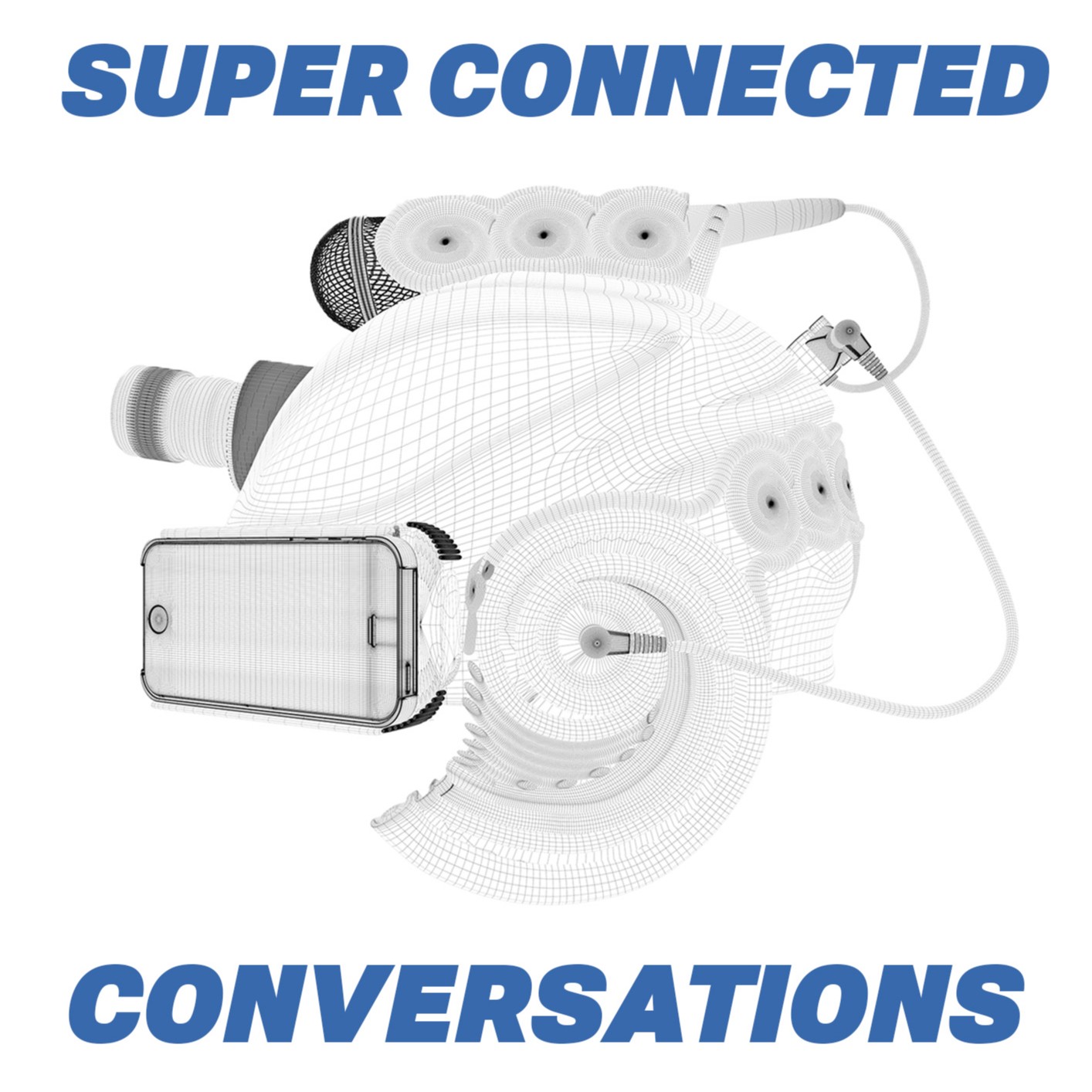 Super Connected ConversationsData Grab with Nick CouldryCatch Super Connected on tour in the UK: https://bit.ly/4bIkHcL
Sociologist and media scholar, Nick Couldry, engages in a compelling dialogue with multimedia artist Tim Arnold about the intricate interplay between media, society and human experience, with a special focus on the use of smartphones by children and teenagers.
Nick Couldry is a distinguished professor at the London School of Economics, specialising in media, communication, and social theory. His books with Ulises A Mejias 'The Costs of Connection' and 'Data Grab' explain the concept of 'data colonialism' as explored on Tim Arnold's album...2024-04-0250 min
Super Connected ConversationsData Grab with Nick CouldryCatch Super Connected on tour in the UK: https://bit.ly/4bIkHcL
Sociologist and media scholar, Nick Couldry, engages in a compelling dialogue with multimedia artist Tim Arnold about the intricate interplay between media, society and human experience, with a special focus on the use of smartphones by children and teenagers.
Nick Couldry is a distinguished professor at the London School of Economics, specialising in media, communication, and social theory. His books with Ulises A Mejias 'The Costs of Connection' and 'Data Grab' explain the concept of 'data colonialism' as explored on Tim Arnold's album...2024-04-0250 min LSE Research channel | VideoWhat is data colonialism?Contributor(s): | Colonialism has not disappeared – it has taken on a new form. In the new world order, data is the new oil. Big Tech companies are grabbing our most basic natural resources – our data – exploiting our labour and connections, and repackaging our information to control our views, track our movements, record our conversations and discriminate against us.
In 'Data Grab: The new colonialism of Big Tech and how to fight back', Nick Couldry and Ulises Mejias, founders of the concept of data colonialism, reveal how history can help us both to understand the emerging future and to fight back.
Find o...2024-02-1902 min
LSE Research channel | VideoWhat is data colonialism?Contributor(s): | Colonialism has not disappeared – it has taken on a new form. In the new world order, data is the new oil. Big Tech companies are grabbing our most basic natural resources – our data – exploiting our labour and connections, and repackaging our information to control our views, track our movements, record our conversations and discriminate against us.
In 'Data Grab: The new colonialism of Big Tech and how to fight back', Nick Couldry and Ulises Mejias, founders of the concept of data colonialism, reveal how history can help us both to understand the emerging future and to fight back.
Find o...2024-02-1902 min Your Favorite Stories, Now in Your Ears - Full AudiobookData Grab: The new Colonialism of Big Tech and how to fight back Audiobook by Nick CouldryListen to this audiobook in full for free onhttps://hotaudiobook.com/freeID: 691809
Title: Data Grab: The new Colonialism of Big Tech and how to fight back
Author: Nick Couldry, Ulises A. Mejias
Narrator: Laurence Dobiesz
Format: Unabridged
Length: 9:56:46
Language: English
Release date: 02-08-24
Publisher: PGRH UK
Genres: Politics, History
Summary:
Brought to you by Penguin.
If you're not paying for the product, then you are the product.
In the past, colonialism was a landgrab of natural resources, exploitative labour and private property from developing countries. It made shiny promises to modernise and civilise, but actually sought to control. It...2024-02-089h 56
Your Favorite Stories, Now in Your Ears - Full AudiobookData Grab: The new Colonialism of Big Tech and how to fight back Audiobook by Nick CouldryListen to this audiobook in full for free onhttps://hotaudiobook.com/freeID: 691809
Title: Data Grab: The new Colonialism of Big Tech and how to fight back
Author: Nick Couldry, Ulises A. Mejias
Narrator: Laurence Dobiesz
Format: Unabridged
Length: 9:56:46
Language: English
Release date: 02-08-24
Publisher: PGRH UK
Genres: Politics, History
Summary:
Brought to you by Penguin.
If you're not paying for the product, then you are the product.
In the past, colonialism was a landgrab of natural resources, exploitative labour and private property from developing countries. It made shiny promises to modernise and civilise, but actually sought to control. It...2024-02-089h 56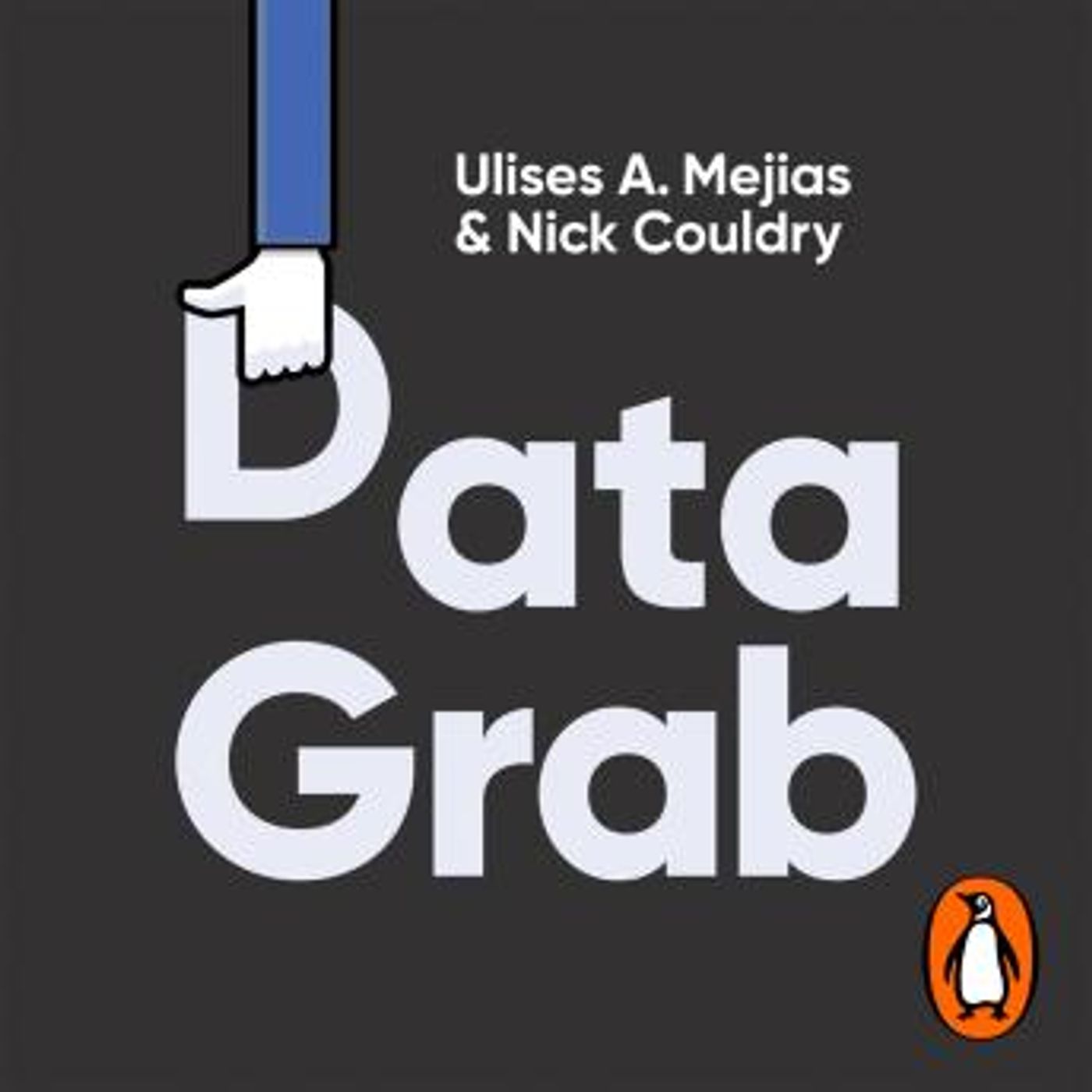 Listen to Full Audiobooks in Non-Fiction, Current Affairs, Law, & PoliticsData Grab: The new Colonialism of Big Tech and how to fight back by Ulises A. Mejias, Nick CouldryPlease visit https://thebookvoice.com/podcasts/1/audiobook/691809 to listen full audiobooks. Title: Data Grab: The new Colonialism of Big Tech and how to fight back Author: Ulises A. Mejias, Nick Couldry Narrator: Laurence Dobiesz Format: Unabridged Audiobook Length: 9 hours 56 minutes Release date: February 8, 2024 Genres: Current Affairs, Law, & Politics Publisher's Summary: Brought to you by Penguin. If you're not paying for the product, then you are the product. In the past, colonialism was a landgrab of natural resources, exploitative labour and private property from developing countries. It made shiny promises to modernise and civilise, but actually sought to control. It made...2024-02-0805 min
Listen to Full Audiobooks in Non-Fiction, Current Affairs, Law, & PoliticsData Grab: The new Colonialism of Big Tech and how to fight back by Ulises A. Mejias, Nick CouldryPlease visit https://thebookvoice.com/podcasts/1/audiobook/691809 to listen full audiobooks. Title: Data Grab: The new Colonialism of Big Tech and how to fight back Author: Ulises A. Mejias, Nick Couldry Narrator: Laurence Dobiesz Format: Unabridged Audiobook Length: 9 hours 56 minutes Release date: February 8, 2024 Genres: Current Affairs, Law, & Politics Publisher's Summary: Brought to you by Penguin. If you're not paying for the product, then you are the product. In the past, colonialism was a landgrab of natural resources, exploitative labour and private property from developing countries. It made shiny promises to modernise and civilise, but actually sought to control. It made...2024-02-0805 min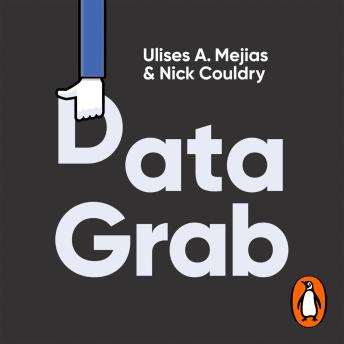 Listen to Latest Full Audiobooks in Non-Fiction, Current Affairs, Law, & PoliticsData Grab: The new Colonialism of Big Tech and how to fight back by Ulises A. Mejias, Nick CouldryPlease visithttps://thebookvoice.com/podcasts/1/audiobook/691809to listen full audiobooks.
Title: Data Grab: The new Colonialism of Big Tech and how to fight back
Author: Ulises A. Mejias, Nick Couldry
Narrator: Laurence Dobiesz
Format: Unabridged Audiobook
Length: 9 hours 56 minutes
Release date: February 8, 2024
Genres: Current Affairs, Law, & Politics
Publisher's Summary:
Brought to you by Penguin. If you're not paying for the product, then you are the product. In the past, colonialism was a landgrab of natural resources, exploitative labour and private property from developing countries. It made shiny promises to modernise and civilise, but actually sought to control. It made native...2024-02-089h 56
Listen to Latest Full Audiobooks in Non-Fiction, Current Affairs, Law, & PoliticsData Grab: The new Colonialism of Big Tech and how to fight back by Ulises A. Mejias, Nick CouldryPlease visithttps://thebookvoice.com/podcasts/1/audiobook/691809to listen full audiobooks.
Title: Data Grab: The new Colonialism of Big Tech and how to fight back
Author: Ulises A. Mejias, Nick Couldry
Narrator: Laurence Dobiesz
Format: Unabridged Audiobook
Length: 9 hours 56 minutes
Release date: February 8, 2024
Genres: Current Affairs, Law, & Politics
Publisher's Summary:
Brought to you by Penguin. If you're not paying for the product, then you are the product. In the past, colonialism was a landgrab of natural resources, exploitative labour and private property from developing countries. It made shiny promises to modernise and civilise, but actually sought to control. It made native...2024-02-089h 56 Novara MediaACFM Trip 35: The InternetIn this bumper Trip, the gang survey the totalising modern phenomenon that is The Internet. Nadia, Keir and Jem dredge up their early interactions with a primitive web and explain how the dream of free and open communication was displaced by closed networks of e-commerce and data harvesting.
Following Keir’s recent Microdose episode with Malcolm Harris, they discuss the connections between self-optimising techies and the pseudo-science of eugenics.
They also talk about digital hygiene, the “Californian ideology”, why the Soviets didn’t invent the internet, and whether psychedelic drugs were the driver of Silicon Valley’s dominance.
Music comes from The F...2023-08-061h 57
Novara MediaACFM Trip 35: The InternetIn this bumper Trip, the gang survey the totalising modern phenomenon that is The Internet. Nadia, Keir and Jem dredge up their early interactions with a primitive web and explain how the dream of free and open communication was displaced by closed networks of e-commerce and data harvesting.
Following Keir’s recent Microdose episode with Malcolm Harris, they discuss the connections between self-optimising techies and the pseudo-science of eugenics.
They also talk about digital hygiene, the “Californian ideology”, why the Soviets didn’t invent the internet, and whether psychedelic drugs were the driver of Silicon Valley’s dominance.
Music comes from The F...2023-08-061h 57 聲與故事的裁縫手:The Sound and Story Stitcher【畢業了,然後呢?】EP01|打開蕭維傑的黑盒子聲與故事的裁縫手全新系列:【畢業了,然後呢?】
歡迎大傳所畢業生回來交流,分享您在畢業之後的闖蕩與心得,或是一起來協作內容。
首集EP01|打開蕭維傑的黑盒子
103級的大傳所友蕭維傑,從研究所就對社群平台的演算法產生興趣,目前在美國德州大學奧斯丁分校攻讀新聞與媒體博士學位的他,是如何走上留學一途,又如何開發區塊鏈媒體的博士研究呢?
Shownotes:
本集製作:小郭、Eva
本集提及學術文獻:
蕭維傑(2017)。能見度的支配與拼搏:Facebook動態消息演算法權力下的台灣新聞媒體。碩士論文。國立臺灣師範大學大眾傳播研究所。
“Machine visions: A corporate imaginary of artificial sight” by Wei-jie Hsiao & Samantha Shorey. New Media & Society. (2023) Online First.
If…Then: Algorithm Power and Politics, by Taina Bucher (Oxford University Press, 2018) 中譯本:被操弄的真實:演算法中隱藏的政治與權力 (臺灣商務,2021)。
“Neither black nor box: Ways of knowing algorithms.” by Taina Bucher, in Innovative methods in media and communication research, (2016): 81-98.
“Media as Data Extraction: Towards a New Map of a Transformed Communication Fields,” by Joseph Turow and Nick Couldry, Journal of Communication 68 (2018): 415-423.
“Seeing without knowing: Limitations of the transparency ideal and its application to algorithmic accountability,” by Mike Ananny and Kate Crawford New Media & Society, 20.3 (2018): 973-989.
“Artificial intelligence and communication: A Human–Machine Communication research agenda,” by Andrea L. Guzman and Seth C. Lewis. New Media & Society, 22.1 (2020): 70-86.
--
Hosting provided by SoundOn 2023-06-1126 min
聲與故事的裁縫手:The Sound and Story Stitcher【畢業了,然後呢?】EP01|打開蕭維傑的黑盒子聲與故事的裁縫手全新系列:【畢業了,然後呢?】
歡迎大傳所畢業生回來交流,分享您在畢業之後的闖蕩與心得,或是一起來協作內容。
首集EP01|打開蕭維傑的黑盒子
103級的大傳所友蕭維傑,從研究所就對社群平台的演算法產生興趣,目前在美國德州大學奧斯丁分校攻讀新聞與媒體博士學位的他,是如何走上留學一途,又如何開發區塊鏈媒體的博士研究呢?
Shownotes:
本集製作:小郭、Eva
本集提及學術文獻:
蕭維傑(2017)。能見度的支配與拼搏:Facebook動態消息演算法權力下的台灣新聞媒體。碩士論文。國立臺灣師範大學大眾傳播研究所。
“Machine visions: A corporate imaginary of artificial sight” by Wei-jie Hsiao & Samantha Shorey. New Media & Society. (2023) Online First.
If…Then: Algorithm Power and Politics, by Taina Bucher (Oxford University Press, 2018) 中譯本:被操弄的真實:演算法中隱藏的政治與權力 (臺灣商務,2021)。
“Neither black nor box: Ways of knowing algorithms.” by Taina Bucher, in Innovative methods in media and communication research, (2016): 81-98.
“Media as Data Extraction: Towards a New Map of a Transformed Communication Fields,” by Joseph Turow and Nick Couldry, Journal of Communication 68 (2018): 415-423.
“Seeing without knowing: Limitations of the transparency ideal and its application to algorithmic accountability,” by Mike Ananny and Kate Crawford New Media & Society, 20.3 (2018): 973-989.
“Artificial intelligence and communication: A Human–Machine Communication research agenda,” by Andrea L. Guzman and Seth C. Lewis. New Media & Society, 22.1 (2020): 70-86.
--
Hosting provided by SoundOn 2023-06-1126 min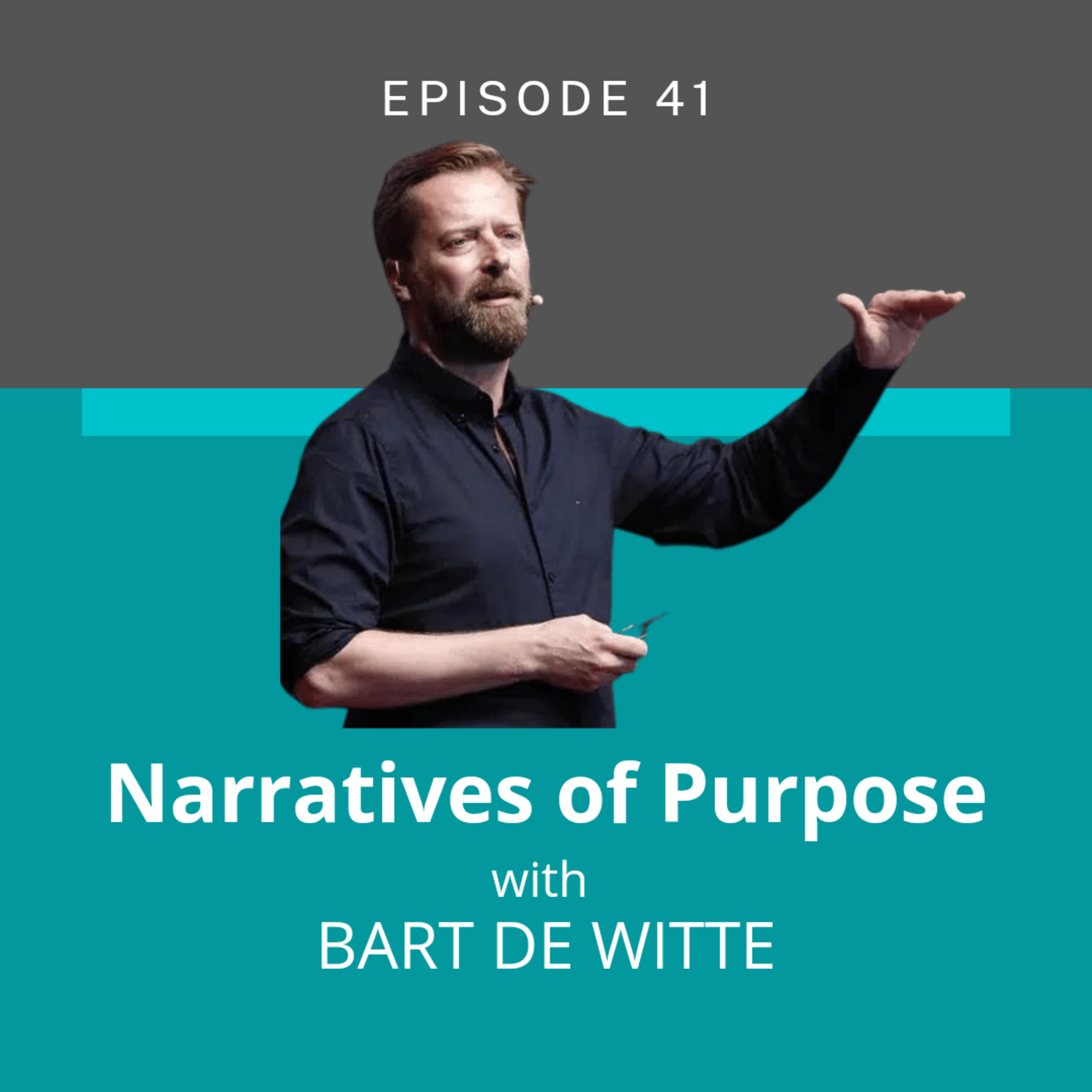 Narratives of PurposeOn Making Medical AI a Common Good - A Conversation with Bart De WitteJoin me for today’s conversation where I will be speaking with Bart De Witte, a leading expert in digital transformation for healthcare in Europe and founder and CEO of the Hippo AI Foundation. As our world moves into the digital area, it’s the perfect time for this episode to provide you with insight, understanding and knowledge of how medical artificial intelligence can impact our ever changing world for the better.At a young age, Bart was inspired and empowered by technology, and at the age of 18 wrote a school pape...2022-11-0841 min
Narratives of PurposeOn Making Medical AI a Common Good - A Conversation with Bart De WitteJoin me for today’s conversation where I will be speaking with Bart De Witte, a leading expert in digital transformation for healthcare in Europe and founder and CEO of the Hippo AI Foundation. As our world moves into the digital area, it’s the perfect time for this episode to provide you with insight, understanding and knowledge of how medical artificial intelligence can impact our ever changing world for the better.At a young age, Bart was inspired and empowered by technology, and at the age of 18 wrote a school pape...2022-11-0841 min Pismo do słuchaniaJak naprawić przyszłość? 16h pracy dziennie? Roboty nie będą narzekaćZamiast promować pracoholizm, lepiej zastanówmy się nad konsekwencjami automatyzacji.
Jaki zawód wybrać? Jakie kompetencje szkolić, by utrzymać się na powierzchni cyfrowej rewolucji i nie dać się sztucznej inteligencji wysłać na technologiczne bezrobocie? Pesymiści, którzy obawiają się, że roboty wyprą człowieka z rynku pracy, i optymiści, którzy powitają je jako dawno wypatrywaną pomoc, zgadzają się co do jednego: automatyzacja powiększy kompetencyjną dyskryminację. A w grupie najbardziej zagrożonych znajdą się kobiety. Jak temu zapobiec? Jak powstrzymać rozwój pracowniczego prekariatu? Jaką rolę w tym procesie powinno odegrać państwo?
O tym wszystkim porozmawiamy w siedemnastym odcinku p...2021-10-281h 04
Pismo do słuchaniaJak naprawić przyszłość? 16h pracy dziennie? Roboty nie będą narzekaćZamiast promować pracoholizm, lepiej zastanówmy się nad konsekwencjami automatyzacji.
Jaki zawód wybrać? Jakie kompetencje szkolić, by utrzymać się na powierzchni cyfrowej rewolucji i nie dać się sztucznej inteligencji wysłać na technologiczne bezrobocie? Pesymiści, którzy obawiają się, że roboty wyprą człowieka z rynku pracy, i optymiści, którzy powitają je jako dawno wypatrywaną pomoc, zgadzają się co do jednego: automatyzacja powiększy kompetencyjną dyskryminację. A w grupie najbardziej zagrożonych znajdą się kobiety. Jak temu zapobiec? Jak powstrzymać rozwój pracowniczego prekariatu? Jaką rolę w tym procesie powinno odegrać państwo?
O tym wszystkim porozmawiamy w siedemnastym odcinku p...2021-10-281h 04 Jak naprawić przyszłość?16 h pracy dziennie? Roboty nie będą narzekać16 godzin pracy dziennie? Czemu nie 24? Roboty już to potrafią. Zamiast promować pracoholizm, lepiej zastanówmy się nad konsekwencjami automatyzacji.Jaki zawód wybrać? Jakie kompetencje szkolić, by utrzymać się na powierzchni cyfrowej rewolucji i nie dać się sztucznej inteligencji wysłać na technologiczne bezrobocie? Pesymiści, którzy obawiają się, że roboty wyprą człowieka z rynku pracy, i optymiści, którzy powitają je jako dawno wypatrywaną pomoc, zgadzają się co do jednego: automatyzacja powiększy kompetencyjną dyskryminację. A w grupie najbardziej zagrożonych znajdą się kobiety. Jak temu zapobiec? Jak powstrzymać rozwój pracowniczego prekariatu? Jaką rolę w tym procesie powinno odegrać państw...2021-10-281h 04
Jak naprawić przyszłość?16 h pracy dziennie? Roboty nie będą narzekać16 godzin pracy dziennie? Czemu nie 24? Roboty już to potrafią. Zamiast promować pracoholizm, lepiej zastanówmy się nad konsekwencjami automatyzacji.Jaki zawód wybrać? Jakie kompetencje szkolić, by utrzymać się na powierzchni cyfrowej rewolucji i nie dać się sztucznej inteligencji wysłać na technologiczne bezrobocie? Pesymiści, którzy obawiają się, że roboty wyprą człowieka z rynku pracy, i optymiści, którzy powitają je jako dawno wypatrywaną pomoc, zgadzają się co do jednego: automatyzacja powiększy kompetencyjną dyskryminację. A w grupie najbardziej zagrożonych znajdą się kobiety. Jak temu zapobiec? Jak powstrzymać rozwój pracowniczego prekariatu? Jaką rolę w tym procesie powinno odegrać państw...2021-10-281h 04 Ascoltare Musica22# Se sparissero i concerti dal vivo?In questa puntata, attingiamo dal lavoro di due ricercatori Philip Auslander, professore di media e comunicazione e Nick Couldry, professore di Media, comunicazione e teoria sociale. Mentre nel nostro paese il mondo della musica sta vivendo un momento particolarmente difficile, per questo è nata l’iniziativa Salviamo la musica Live, ci si chiede se la musica dal vivo ha ancora un futuro. Qui tutti i riferimenti della puntata https://ascoltaremusica.info/22-se-sparissero-i-concerti-dal-vivo/ E tu cosa ne pensi? Lascia un commento alla puntata.2021-10-0609 min
Ascoltare Musica22# Se sparissero i concerti dal vivo?In questa puntata, attingiamo dal lavoro di due ricercatori Philip Auslander, professore di media e comunicazione e Nick Couldry, professore di Media, comunicazione e teoria sociale. Mentre nel nostro paese il mondo della musica sta vivendo un momento particolarmente difficile, per questo è nata l’iniziativa Salviamo la musica Live, ci si chiede se la musica dal vivo ha ancora un futuro. Qui tutti i riferimenti della puntata https://ascoltaremusica.info/22-se-sparissero-i-concerti-dal-vivo/ E tu cosa ne pensi? Lascia un commento alla puntata.2021-10-0609 min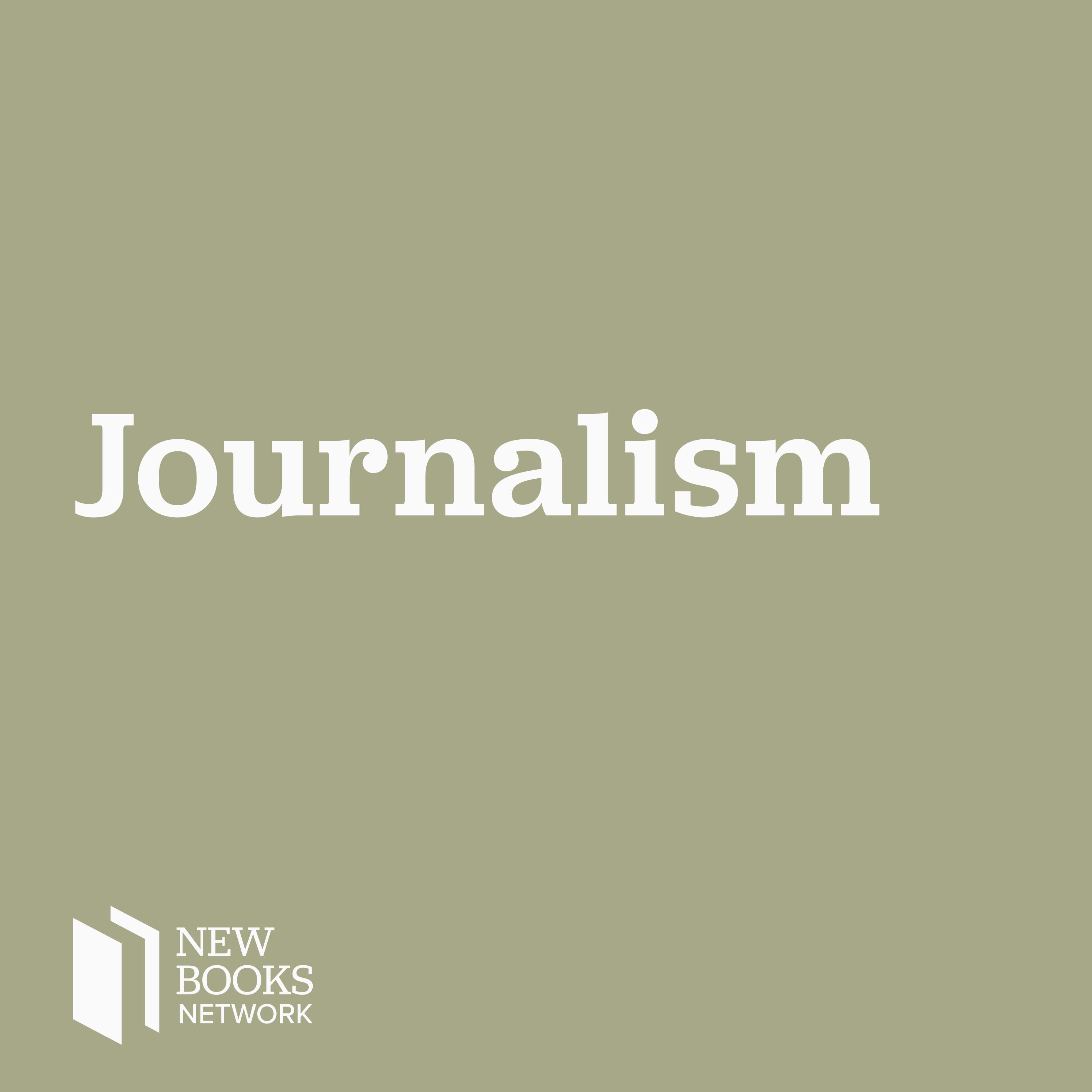 New Books in JournalismNick Couldry, “The Value of Voice” (Open Agenda, 2021)The Value of Voice is based on an in-depth filmed conversation between Howard Burton and Nick Couldry, Professor of Media, Communications and Social Theory in the Department of Media and Communications at the London School of Economics. This wide-ranging conversation explores how the media can be used as a filter to examine power structures, political movements, economic interests, democracy and our evolving notion of culture, the importance of voice and the challenge posed by media institutions that order the social, political, cultural, economic, and ethical dimensions of our lives.Howard Burton is the founder of the Ideas...2021-07-291h 47
New Books in JournalismNick Couldry, “The Value of Voice” (Open Agenda, 2021)The Value of Voice is based on an in-depth filmed conversation between Howard Burton and Nick Couldry, Professor of Media, Communications and Social Theory in the Department of Media and Communications at the London School of Economics. This wide-ranging conversation explores how the media can be used as a filter to examine power structures, political movements, economic interests, democracy and our evolving notion of culture, the importance of voice and the challenge posed by media institutions that order the social, political, cultural, economic, and ethical dimensions of our lives.Howard Burton is the founder of the Ideas...2021-07-291h 47 Ideas Roadshow PodcastNick Couldry, “The Value of Voice” (Open Agenda, 2021)The Value of Voice is based on an in-depth filmed conversation between Howard Burton and Nick Couldry, Professor of Media, Communications and Social Theory in the Department of Media and Communications at the London School of Economics. This wide-ranging conversation explores how the media can be used as a filter to examine power structures, political movements, economic interests, democracy and our evolving notion of culture, the importance of voice and the challenge posed by media institutions that order the social, political, cultural, economic, and ethical dimensions of our lives.Howard Burton is the founder of the Ideas...2021-07-291h 47
Ideas Roadshow PodcastNick Couldry, “The Value of Voice” (Open Agenda, 2021)The Value of Voice is based on an in-depth filmed conversation between Howard Burton and Nick Couldry, Professor of Media, Communications and Social Theory in the Department of Media and Communications at the London School of Economics. This wide-ranging conversation explores how the media can be used as a filter to examine power structures, political movements, economic interests, democracy and our evolving notion of culture, the importance of voice and the challenge posed by media institutions that order the social, political, cultural, economic, and ethical dimensions of our lives.Howard Burton is the founder of the Ideas...2021-07-291h 47 Super Connected ConversationsWith Nick Couldry and Ulises MejiasNick Couldry is Professor of Media, Communications and Social Theory at the London School of Economics and Political Science. Ulises A. Mejias is a Professor of Communication Studies and Director of the Institute for Global Engagement at the State University of New York, College at Oswego.
Just about any social need is now met with an opportunity to "connect" through digital means. But this convenience is not free—it is purchased with vast amounts of personal data transferred through shadowy backchannels to corporations using it to generate profit. Nick and Ulises' book The Costs of Connection uncovers thi...2021-06-261h 07
Super Connected ConversationsWith Nick Couldry and Ulises MejiasNick Couldry is Professor of Media, Communications and Social Theory at the London School of Economics and Political Science. Ulises A. Mejias is a Professor of Communication Studies and Director of the Institute for Global Engagement at the State University of New York, College at Oswego.
Just about any social need is now met with an opportunity to "connect" through digital means. But this convenience is not free—it is purchased with vast amounts of personal data transferred through shadowy backchannels to corporations using it to generate profit. Nick and Ulises' book The Costs of Connection uncovers thi...2021-06-261h 07 Podcast da Lítera#19 - O que Baco Exu do Blues tem a ver com Literatura Argentina? Vem que eu te ContoNesse episódio da série "Vem que eu te conto", o professor Victor Valente aborda as relações entre a canção "Minotauro de Borges", de Baco Exu do Blues, e o conto "A casa de Astérion", do escritor argentino Jorge Luis Borges. O papo passeia, ainda, por sucesso, depressão, afeto, e pela obra "Por que a voz importa", do filósofo Nick Couldry.2021-05-2007 min
Podcast da Lítera#19 - O que Baco Exu do Blues tem a ver com Literatura Argentina? Vem que eu te ContoNesse episódio da série "Vem que eu te conto", o professor Victor Valente aborda as relações entre a canção "Minotauro de Borges", de Baco Exu do Blues, e o conto "A casa de Astérion", do escritor argentino Jorge Luis Borges. O papo passeia, ainda, por sucesso, depressão, afeto, e pela obra "Por que a voz importa", do filósofo Nick Couldry.2021-05-2007 min MKV-poddenNedkopplingVi talar digital detox med Trine Syvertsen. Vi läser Nick Couldry’s Media, why it matters (2020), med Stina Bengtsson. Trine tänker på Buggles. Hosted on Acast. See acast.com/privacy for more information.2021-03-2247 min
MKV-poddenNedkopplingVi talar digital detox med Trine Syvertsen. Vi läser Nick Couldry’s Media, why it matters (2020), med Stina Bengtsson. Trine tänker på Buggles. Hosted on Acast. See acast.com/privacy for more information.2021-03-2247 min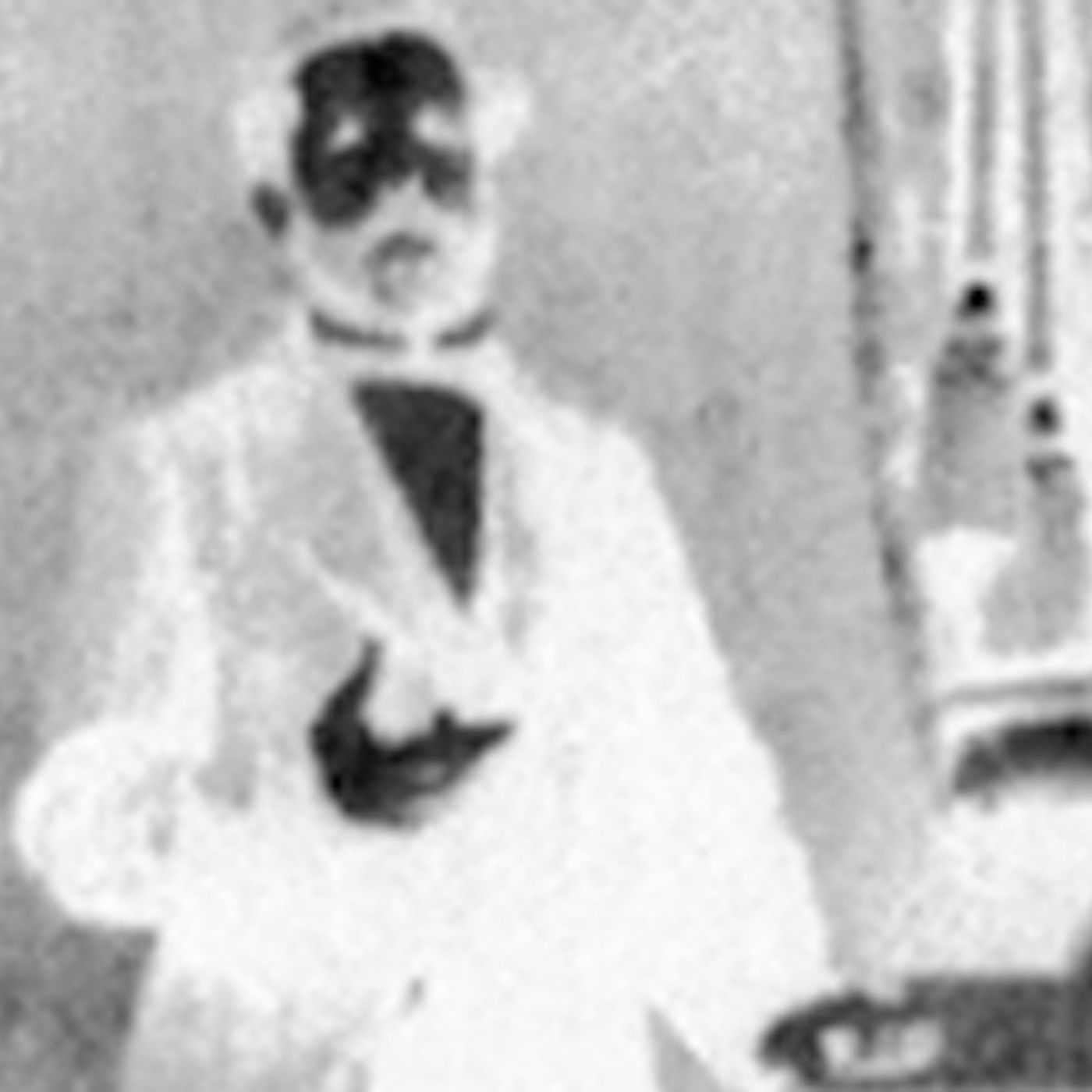 Pushing the EnvelopesE08 - RADIO SCHREBER (Richard Crow)RADIO SCHREBER, SOLILOQUIES FOR SCHIZOPHONIC VOICES"Radio Schreber, Soliloquies for Schizophonic voices" investigated the recurring theme of 'hearing voices' in sonic and literary works by paying homage to Daniel Paul Schreber's "Memoirs of My Nervous Illness" (Denkwürdigkeiten einen Nervenkranken). Written at Sonnenstein Public asylum and published in 1903, the Memoirs detail and map an alternate delusional world.For the centenary of Schreber's death, this sound performance gives voice to Schreber's visionary text through a specially created composition that premiered at the Freud Museum, London. As a continuation of his project "Imaginary Hospital Radio", Richard Crow explores a s...2021-02-2141 min
Pushing the EnvelopesE08 - RADIO SCHREBER (Richard Crow)RADIO SCHREBER, SOLILOQUIES FOR SCHIZOPHONIC VOICES"Radio Schreber, Soliloquies for Schizophonic voices" investigated the recurring theme of 'hearing voices' in sonic and literary works by paying homage to Daniel Paul Schreber's "Memoirs of My Nervous Illness" (Denkwürdigkeiten einen Nervenkranken). Written at Sonnenstein Public asylum and published in 1903, the Memoirs detail and map an alternate delusional world.For the centenary of Schreber's death, this sound performance gives voice to Schreber's visionary text through a specially created composition that premiered at the Freud Museum, London. As a continuation of his project "Imaginary Hospital Radio", Richard Crow explores a s...2021-02-2141 min Tech Won't Save UsWhy We Need a Democratic Approach to Data w/ Salomé ViljoenParis Marx is joined by Salomé Viljoen to discuss existing proposals to expand individual data rights or treat it as a form of labor, why we instead need to see data governance as a collective democratic project, and how that would give us the power to decide what data is collected and what it’s used for.Salomé Viljoen is an affiliate at Berkman Klein Center for Internet and Society at Harvard University, and a joint postdoctoral fellow at NYU School of Law’s Information Law Institute and the Cornell Tech Digital Life Initiative. Follow Salomé on Twitter...2021-01-1443 min
Tech Won't Save UsWhy We Need a Democratic Approach to Data w/ Salomé ViljoenParis Marx is joined by Salomé Viljoen to discuss existing proposals to expand individual data rights or treat it as a form of labor, why we instead need to see data governance as a collective democratic project, and how that would give us the power to decide what data is collected and what it’s used for.Salomé Viljoen is an affiliate at Berkman Klein Center for Internet and Society at Harvard University, and a joint postdoctoral fellow at NYU School of Law’s Information Law Institute and the Cornell Tech Digital Life Initiative. Follow Salomé on Twitter...2021-01-1443 min EXALT PodcastNick Couldry and Ulises Mejias - How much of your life has Big Data colonized and extracted to the cloud?This month we talk with Nick Couldry and Ulises Mejias. Nick is a professor of Media, Communications and Social Theory in the Department of Media and Communications at London School of Economics. Ulises is a professor of Communication Studies and the director of the Institute for Global Engagement at SUNY Oswego. They recently co-authored a book called ‘The Costs of Connection: How Data is Colonizing Human Life and Appropriating it for Capitalism.’ This book explores the role that data and data production plays in the modern world and the concept of data colonialism. Data colonialism is a form of appr...2020-09-2550 min
EXALT PodcastNick Couldry and Ulises Mejias - How much of your life has Big Data colonized and extracted to the cloud?This month we talk with Nick Couldry and Ulises Mejias. Nick is a professor of Media, Communications and Social Theory in the Department of Media and Communications at London School of Economics. Ulises is a professor of Communication Studies and the director of the Institute for Global Engagement at SUNY Oswego. They recently co-authored a book called ‘The Costs of Connection: How Data is Colonizing Human Life and Appropriating it for Capitalism.’ This book explores the role that data and data production plays in the modern world and the concept of data colonialism. Data colonialism is a form of appr...2020-09-2550 min PERSPECTIVA, CUARTA TEMPORADAT04-EP15 PerspectivaEn este episodio:
1-. Segunda parte Nick Couldry – CCM
2.- 2 conversatorio Dr. José Narro - CEM
3.- Cápsula Te cuento en corto “Vendrán lluvias suaves” – Toluca
4.- Cápsula “Comunicación en otros aspectos” – Puebla
5.- Nota 3 “Charla Juan Enríquez Cabot” – Monterrey
6.- Nota “Mexicano investiga cómo reducir el impacto de las quimioterapias” – Toluca
7.- Recomendación musical Santa Claus Is Coming to Town – Michael Bublé2019-12-1200 min
PERSPECTIVA, CUARTA TEMPORADAT04-EP15 PerspectivaEn este episodio:
1-. Segunda parte Nick Couldry – CCM
2.- 2 conversatorio Dr. José Narro - CEM
3.- Cápsula Te cuento en corto “Vendrán lluvias suaves” – Toluca
4.- Cápsula “Comunicación en otros aspectos” – Puebla
5.- Nota 3 “Charla Juan Enríquez Cabot” – Monterrey
6.- Nota “Mexicano investiga cómo reducir el impacto de las quimioterapias” – Toluca
7.- Recomendación musical Santa Claus Is Coming to Town – Michael Bublé2019-12-1200 min Culture, Power and Politics » PodcastThe Costs of ConnectionThe Costs of Connection: How Data is Colonising Human Life and Appropriating it for Capitalism
with Nick Couldry and Ulises Mejias
Just about any social need is now met with an opportunity to “connect” through digital means. But this convenience is not free-it is purchased with vast amounts of personal data transferred through shadowy backchannels to corporations using it to generate profit. Colonialism might seem like a thing of the past, but in their new book, The Costs of Connection, Nick Couldry and Ulises Mejias show th...2019-07-091h 39
Culture, Power and Politics » PodcastThe Costs of ConnectionThe Costs of Connection: How Data is Colonising Human Life and Appropriating it for Capitalism
with Nick Couldry and Ulises Mejias
Just about any social need is now met with an opportunity to “connect” through digital means. But this convenience is not free-it is purchased with vast amounts of personal data transferred through shadowy backchannels to corporations using it to generate profit. Colonialism might seem like a thing of the past, but in their new book, The Costs of Connection, Nick Couldry and Ulises Mejias show th...2019-07-091h 39 Digital Sociology PodcastEpisode 19: Nick Couldry, Data Colonialism and the mediated construction of reality
For this episode of the Digital Sociology Podcast I spoke to Nick Couldry who is Professor of Media, Communication and Social Theory at the London School of Economics
He suggests that digital platforms are appropriating "human life without limit" as all aspects of our life become transformed into data. Nick and his co-author Ulises A. Mejias describe this as a form of big data colonialism as it is a process through which our lives are deemed apt for extraction and appropriation without payment (like the raw materials of the new world were by colonisers).
2019-02-1943 min
Digital Sociology PodcastEpisode 19: Nick Couldry, Data Colonialism and the mediated construction of reality
For this episode of the Digital Sociology Podcast I spoke to Nick Couldry who is Professor of Media, Communication and Social Theory at the London School of Economics
He suggests that digital platforms are appropriating "human life without limit" as all aspects of our life become transformed into data. Nick and his co-author Ulises A. Mejias describe this as a form of big data colonialism as it is a process through which our lives are deemed apt for extraction and appropriation without payment (like the raw materials of the new world were by colonisers).
2019-02-1943 min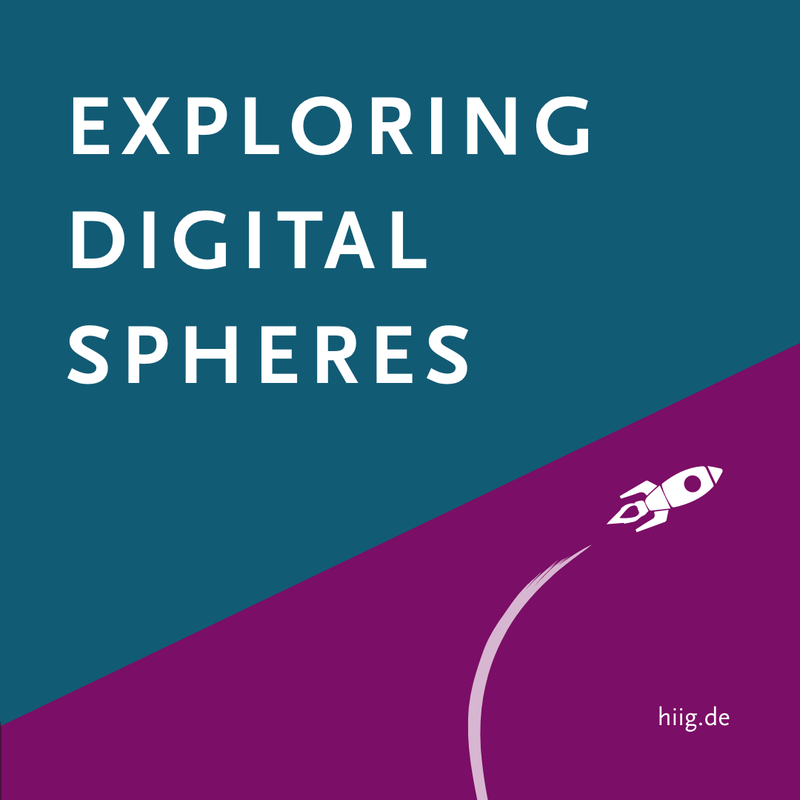 Exploring Digital SpheresAre we colonised by data?Nick Couldry on media rituals and data colonialism
Nick Couldry has recently coined the term 'data colonialism' in order to highlight continuities from colonialism’s historic appropriation of resources to today's datafication of everyday life.
Couldry, professor of Media, Communications and Social Theory at the London School of Economics and Political Science (LSE), visited us in Berlin for his lecture "Colonised by data". HIIG researcher Thomas Christian Bächle met with Couldry – who once was his professor at Goldsmiths College in London eleven years ago – for a talk on the digital society. In this episode, we learn about C...2018-12-1826 min
Exploring Digital SpheresAre we colonised by data?Nick Couldry on media rituals and data colonialism
Nick Couldry has recently coined the term 'data colonialism' in order to highlight continuities from colonialism’s historic appropriation of resources to today's datafication of everyday life.
Couldry, professor of Media, Communications and Social Theory at the London School of Economics and Political Science (LSE), visited us in Berlin for his lecture "Colonised by data". HIIG researcher Thomas Christian Bächle met with Couldry – who once was his professor at Goldsmiths College in London eleven years ago – for a talk on the digital society. In this episode, we learn about C...2018-12-1826 min Sage Communication & Media StudiesTVN - Data Colonialism: Rethinking Big Data’s Relation to the Contemporary SubjectIn this Television & New Media podcast, editor Jonathan Corpus Ong interviews author Nick Couldry on his and co-author Ulises A. Mejias article entitled "Data Colonialism: Rethinking Big Data’s Relation to the Contemporary Subject."2018-12-1425 min
Sage Communication & Media StudiesTVN - Data Colonialism: Rethinking Big Data’s Relation to the Contemporary SubjectIn this Television & New Media podcast, editor Jonathan Corpus Ong interviews author Nick Couldry on his and co-author Ulises A. Mejias article entitled "Data Colonialism: Rethinking Big Data’s Relation to the Contemporary Subject."2018-12-1425 min Online GodsThe Mediated Construction of Reality and Change dot Org India: Online Gods #5This month we speak with Nick Couldry about the mediated construction of reality and Nida Hasan about Change.org India Online Gods is a monthly podcast on digital cultures and their political ramifications, featuring lively conversations with scholars and activists. Presented by anthropologist Ian M. Cook, the podcast is a key initiative of the five year ERC project ONLINERPOL www.fordigitaldignity.com led by media anthropologist Sahana Udupa at LMU Munich, and cohosted by HAU Network for Ethnographic Theory. Online Gods represents our collective commitment to multimedia diffusion of research in accessible and engaging formats.2018-01-3151 min
Online GodsThe Mediated Construction of Reality and Change dot Org India: Online Gods #5This month we speak with Nick Couldry about the mediated construction of reality and Nida Hasan about Change.org India Online Gods is a monthly podcast on digital cultures and their political ramifications, featuring lively conversations with scholars and activists. Presented by anthropologist Ian M. Cook, the podcast is a key initiative of the five year ERC project ONLINERPOL www.fordigitaldignity.com led by media anthropologist Sahana Udupa at LMU Munich, and cohosted by HAU Network for Ethnographic Theory. Online Gods represents our collective commitment to multimedia diffusion of research in accessible and engaging formats.2018-01-3151 min MIT Comparative Media Studies/WritingThe Mediated Construction of Reality - From Berger and Luckmann to Norbert EliasNick Couldry outlined the project of his recent book, The Mediated Construction of Reality (Polity October 2016, co-written with Andreas Hepp). The book offers a critical reevaluation and rearticulation of the social constructivist ambitions of Berger and Luckmann’s 1966 book The Social Construction of Reality while radically rethinking the implications of this for a world saturated not just with digital media, but with data processes. Couldry outlined how a materialist phenomenology can draw not just on traditional phenomenology, but on the social theory of Norbert Elias, particularly his concept of figurations, to address the challenges of social analysis in the face of...2017-09-291h 28
MIT Comparative Media Studies/WritingThe Mediated Construction of Reality - From Berger and Luckmann to Norbert EliasNick Couldry outlined the project of his recent book, The Mediated Construction of Reality (Polity October 2016, co-written with Andreas Hepp). The book offers a critical reevaluation and rearticulation of the social constructivist ambitions of Berger and Luckmann’s 1966 book The Social Construction of Reality while radically rethinking the implications of this for a world saturated not just with digital media, but with data processes. Couldry outlined how a materialist phenomenology can draw not just on traditional phenomenology, but on the social theory of Norbert Elias, particularly his concept of figurations, to address the challenges of social analysis in the face of...2017-09-291h 28 LSE IQLSEIQ Episode 3 | Is social media good for society?Contributor(s): Professor Nick Couldry, Dr Ellen Helsper, Professor Sonia Livingstone, Svenja Ottovordemgentschenfelde | Welcome to LSE IQ, a new monthly podcast from the London School of Economics and Political Science. This is the podcast where we ask some of the leading social scientists - and other experts - to answer intelligent questions about economics, politics or society. In this episode, Jo Bale investigates social media amid growing concerns that tech companies are putting profit before the well-being of individual users and democratic societies. She talks to Nick Couldry, Ellen Helsper, Sonia Livingstone and Svenja Ottovordemgentschenfelde of LSE's Department of Media...2017-06-0628 min
LSE IQLSEIQ Episode 3 | Is social media good for society?Contributor(s): Professor Nick Couldry, Dr Ellen Helsper, Professor Sonia Livingstone, Svenja Ottovordemgentschenfelde | Welcome to LSE IQ, a new monthly podcast from the London School of Economics and Political Science. This is the podcast where we ask some of the leading social scientists - and other experts - to answer intelligent questions about economics, politics or society. In this episode, Jo Bale investigates social media amid growing concerns that tech companies are putting profit before the well-being of individual users and democratic societies. She talks to Nick Couldry, Ellen Helsper, Sonia Livingstone and Svenja Ottovordemgentschenfelde of LSE's Department of Media...2017-06-0628 min LSE IQ podcastLSEIQ Episode 3 | Is social media good for society?Contributor(s): Professor Nick Couldry, Dr Ellen Helsper, Professor Sonia Livingstone, Svenja Ottovordemgentschenfelde | Welcome to LSE IQ, a new monthly podcast from the London School of Economics and Political Science. This is the podcast where we ask some of the leading social scientists - and other experts - to answer intelligent questions about economics, politics or society. In this episode, Jo Bale investigates social media amid growing concerns that tech companies are putting profit before the well-being of individual users and democratic societies. She talks to Nick Couldry, Ellen Helsper, Sonia Livingstone and Svenja Ottovordemgentschenfelde of LSE's Department of Media...2017-06-0628 min
LSE IQ podcastLSEIQ Episode 3 | Is social media good for society?Contributor(s): Professor Nick Couldry, Dr Ellen Helsper, Professor Sonia Livingstone, Svenja Ottovordemgentschenfelde | Welcome to LSE IQ, a new monthly podcast from the London School of Economics and Political Science. This is the podcast where we ask some of the leading social scientists - and other experts - to answer intelligent questions about economics, politics or society. In this episode, Jo Bale investigates social media amid growing concerns that tech companies are putting profit before the well-being of individual users and democratic societies. She talks to Nick Couldry, Ellen Helsper, Sonia Livingstone and Svenja Ottovordemgentschenfelde of LSE's Department of Media...2017-06-0628 min LSE IQ | Intelligent questions with social science answersIs social media good for society?To subscribe on iTunes please visit - https://itunes.apple.com/gb/podcast/lse-iq-podcast/id1223817465 or search for 'LSE IQ' in your favourite podcast app.
Welcome to LSE IQ, a new monthly podcast from the London School of Economics and Political Science. This is the podcast where we ask some of the leading social scientists - and other experts - to answer intelligent questions about economics, politics or society.
In this episode, Jo Bale investigates social media amid growing concerns that tech companies are putting profit before the well-being of individual users and democratic societies. She talks to Nick Couldry...2017-06-0628 min
LSE IQ | Intelligent questions with social science answersIs social media good for society?To subscribe on iTunes please visit - https://itunes.apple.com/gb/podcast/lse-iq-podcast/id1223817465 or search for 'LSE IQ' in your favourite podcast app.
Welcome to LSE IQ, a new monthly podcast from the London School of Economics and Political Science. This is the podcast where we ask some of the leading social scientists - and other experts - to answer intelligent questions about economics, politics or society.
In this episode, Jo Bale investigates social media amid growing concerns that tech companies are putting profit before the well-being of individual users and democratic societies. She talks to Nick Couldry...2017-06-0628 min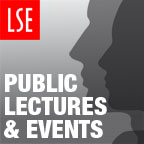 Latest 300 | LSE Public lectures and events | Audio and pdfMedia, War and Peacebuilding [Audio]Speaker(s): Professor Clemencia Rodríguez | The presence of armed groups and the proximity of armed violence and war have a tremendous impact on a community’s daily life, social fabric, local political and economic processes, and inter-communal relationships and interactions. This talk will examine the different ways war impacts communities and how citizens’ media can counter these impacts. Through a series of examples from Professor Rodriguez's fieldwork in Colombia, the talk will illustrate the complex and multidimensional roles citizens’ media have in contexts of armed violence. Instead of conceiving of media exclusively as tools for information or persuasion, she will ex...2017-03-141h 28
Latest 300 | LSE Public lectures and events | Audio and pdfMedia, War and Peacebuilding [Audio]Speaker(s): Professor Clemencia Rodríguez | The presence of armed groups and the proximity of armed violence and war have a tremendous impact on a community’s daily life, social fabric, local political and economic processes, and inter-communal relationships and interactions. This talk will examine the different ways war impacts communities and how citizens’ media can counter these impacts. Through a series of examples from Professor Rodriguez's fieldwork in Colombia, the talk will illustrate the complex and multidimensional roles citizens’ media have in contexts of armed violence. Instead of conceiving of media exclusively as tools for information or persuasion, she will ex...2017-03-141h 28 Spring 2016 | Public lectures and events | VideoExpectations of Openness in an Age of Secrecy: where the 'Right to Know' comes fromContributor(s): Professor Michael Schudson | In an age of WikiLeaks, Chelsea Manning, and Edward Snowden, it may seem odd to argue that we have expectations of openness in democracies greater than ever before, but we do. Not only expectations but institutional mechanisms in government, legislated guarantees, guardians of openness in civil society, practices of disclosure in health care, advertising, food packaging and labelling, and elsewhere. In the U.S. case, the focal point of this lecture, little of this goes back to the early days of the Republic, but almost all of it precedes the Internet. The U.S. Freedom...2016-01-131h 28
Spring 2016 | Public lectures and events | VideoExpectations of Openness in an Age of Secrecy: where the 'Right to Know' comes fromContributor(s): Professor Michael Schudson | In an age of WikiLeaks, Chelsea Manning, and Edward Snowden, it may seem odd to argue that we have expectations of openness in democracies greater than ever before, but we do. Not only expectations but institutional mechanisms in government, legislated guarantees, guardians of openness in civil society, practices of disclosure in health care, advertising, food packaging and labelling, and elsewhere. In the U.S. case, the focal point of this lecture, little of this goes back to the early days of the Republic, but almost all of it precedes the Internet. The U.S. Freedom...2016-01-131h 28 Spring 2016 | Public lectures and events | Audio and pdfExpectations of Openness in an Age of Secrecy: where the 'Right to Know' comes fromContributor(s): Professor Michael Schudson | In an age of WikiLeaks, Chelsea Manning, and Edward Snowden, it may seem odd to argue that we have expectations of openness in democracies greater than ever before, but we do. Not only expectations but institutional mechanisms in government, legislated guarantees, guardians of openness in civil society, practices of disclosure in health care, advertising, food packaging and labelling, and elsewhere. In the U.S. case, the focal point of this lecture, little of this goes back to the early days of the Republic, but almost all of it precedes the Internet. The U.S. Freedom...2016-01-131h 28
Spring 2016 | Public lectures and events | Audio and pdfExpectations of Openness in an Age of Secrecy: where the 'Right to Know' comes fromContributor(s): Professor Michael Schudson | In an age of WikiLeaks, Chelsea Manning, and Edward Snowden, it may seem odd to argue that we have expectations of openness in democracies greater than ever before, but we do. Not only expectations but institutional mechanisms in government, legislated guarantees, guardians of openness in civil society, practices of disclosure in health care, advertising, food packaging and labelling, and elsewhere. In the U.S. case, the focal point of this lecture, little of this goes back to the early days of the Republic, but almost all of it precedes the Internet. The U.S. Freedom...2016-01-131h 28 Spring 2015 | Public lectures and events | VideoCode and Law between Truth and PowerContributor(s): Professor Julie Cohen, Anne Barron | The problem of control over information flows has emerged as a doubly critical vantage point from which to interrogate the exercise of power and the pursuit of justice. Scholars of law and communications have come to recognize that in the networked information society, the dialogue between truth and power is mediated by the code. The Internet has been hailed as the ultimate medium for speaking truth to power, but networked information technologies also can become means for embedding power and entrenching inequality. Information and network protocols also have become sources of great wealth...2015-03-111h 14
Spring 2015 | Public lectures and events | VideoCode and Law between Truth and PowerContributor(s): Professor Julie Cohen, Anne Barron | The problem of control over information flows has emerged as a doubly critical vantage point from which to interrogate the exercise of power and the pursuit of justice. Scholars of law and communications have come to recognize that in the networked information society, the dialogue between truth and power is mediated by the code. The Internet has been hailed as the ultimate medium for speaking truth to power, but networked information technologies also can become means for embedding power and entrenching inequality. Information and network protocols also have become sources of great wealth...2015-03-111h 14 Spring 2015 | Public lectures and events | Audio and pdfCode and Law between Truth and PowerContributor(s): Professor Julie Cohen, Anne Barron | The problem of control over information flows has emerged as a doubly critical vantage point from which to interrogate the exercise of power and the pursuit of justice. Scholars of law and communications have come to recognize that in the networked information society, the dialogue between truth and power is mediated by the code. The Internet has been hailed as the ultimate medium for speaking truth to power, but networked information technologies also can become means for embedding power and entrenching inequality. Information and network protocols also have become sources of great wealth...2015-03-111h 14
Spring 2015 | Public lectures and events | Audio and pdfCode and Law between Truth and PowerContributor(s): Professor Julie Cohen, Anne Barron | The problem of control over information flows has emerged as a doubly critical vantage point from which to interrogate the exercise of power and the pursuit of justice. Scholars of law and communications have come to recognize that in the networked information society, the dialogue between truth and power is mediated by the code. The Internet has been hailed as the ultimate medium for speaking truth to power, but networked information technologies also can become means for embedding power and entrenching inequality. Information and network protocols also have become sources of great wealth...2015-03-111h 14 Spring 2015 | Public lectures and events | Audio and pdfChildren's Rights in the Digital AgeContributor(s): Professor Sonia Livingstone, John Carr, Professor Robin Mansell | Are children’s rights enhanced or undermined by access to the internet? Charters and manifestos for the digital age are proliferating, but where do children fit in? Sonia Livingstone (@Livingstone_S) OBE is a Professor of Social Psychology in the Department of Media and Communications at LSE and Project Director of EU Kids Online. John Carr (@johnc1912) is a member of the Executive Board of the UK Council on Child Internet Safety, the British Government's principal advisory body for online safety and security for children and young people. Robin Mansell (@RE...2015-02-111h 27
Spring 2015 | Public lectures and events | Audio and pdfChildren's Rights in the Digital AgeContributor(s): Professor Sonia Livingstone, John Carr, Professor Robin Mansell | Are children’s rights enhanced or undermined by access to the internet? Charters and manifestos for the digital age are proliferating, but where do children fit in? Sonia Livingstone (@Livingstone_S) OBE is a Professor of Social Psychology in the Department of Media and Communications at LSE and Project Director of EU Kids Online. John Carr (@johnc1912) is a member of the Executive Board of the UK Council on Child Internet Safety, the British Government's principal advisory body for online safety and security for children and young people. Robin Mansell (@RE...2015-02-111h 27 Spring 2015 | Public lectures and events | VideoChildren's Rights in the Digital AgeContributor(s): Professor Sonia Livingstone, John Carr, Professor Robin Mansell | Are children’s rights enhanced or undermined by access to the internet? Charters and manifestos for the digital age are proliferating, but where do children fit in? Sonia Livingstone (@Livingstone_S) OBE is a Professor of Social Psychology in the Department of Media and Communications at LSE and Project Director of EU Kids Online. John Carr (@johnc1912) is a member of the Executive Board of the UK Council on Child Internet Safety, the British Government's principal advisory body for online safety and security for children and young people. Robin Mansell (@RE...2015-02-111h 27
Spring 2015 | Public lectures and events | VideoChildren's Rights in the Digital AgeContributor(s): Professor Sonia Livingstone, John Carr, Professor Robin Mansell | Are children’s rights enhanced or undermined by access to the internet? Charters and manifestos for the digital age are proliferating, but where do children fit in? Sonia Livingstone (@Livingstone_S) OBE is a Professor of Social Psychology in the Department of Media and Communications at LSE and Project Director of EU Kids Online. John Carr (@johnc1912) is a member of the Executive Board of the UK Council on Child Internet Safety, the British Government's principal advisory body for online safety and security for children and young people. Robin Mansell (@RE...2015-02-111h 27 Autumn 2014 | Public lectures and events | VideoThe Global Public SphereContributor(s): Dr Ingrid Volkmer, Professor Mary Kaldor | Dr Ingrid Volkmer completely rethinks the “public sphere” concept for an age of global media. Ingrid Volkmer is Associate Professor in the Department of Media and Communications at the University of Melbourne. Mary Kaldor is Professor of Global Governance and Programme Director, Civil Society and Human Security Research Unit, LSE. Nick Couldry (@couldrynick) is Professor of Media, Communications and Social Theory in the Department of Media and communications at LSE. The Department of Media and Communications at LSE (@MediaLSE) has recently been ranked 2nd in the 2014 QS World University Rankings by Subject. Cred...2014-11-261h 18
Autumn 2014 | Public lectures and events | VideoThe Global Public SphereContributor(s): Dr Ingrid Volkmer, Professor Mary Kaldor | Dr Ingrid Volkmer completely rethinks the “public sphere” concept for an age of global media. Ingrid Volkmer is Associate Professor in the Department of Media and Communications at the University of Melbourne. Mary Kaldor is Professor of Global Governance and Programme Director, Civil Society and Human Security Research Unit, LSE. Nick Couldry (@couldrynick) is Professor of Media, Communications and Social Theory in the Department of Media and communications at LSE. The Department of Media and Communications at LSE (@MediaLSE) has recently been ranked 2nd in the 2014 QS World University Rankings by Subject. Cred...2014-11-261h 18 2014 | LSE Public lectures and events | Audio and pdfThe Global Public SphereContributor(s): Dr Ingrid Volkmer, Professor Mary Kaldor | Dr Ingrid Volkmer completely rethinks the “public sphere” concept for an age of global media. Ingrid Volkmer is Associate Professor in the Department of Media and Communications at the University of Melbourne. Mary Kaldor is Professor of Global Governance and Programme Director, Civil Society and Human Security Research Unit, LSE. Nick Couldry (@couldrynick) is Professor of Media, Communications and Social Theory in the Department of Media and communications at LSE. The Department of Media and Communications at LSE (@MediaLSE) has recently been ranked 2nd in the 2014 QS World University Rankings by Subject. Cred...2014-11-261h 18
2014 | LSE Public lectures and events | Audio and pdfThe Global Public SphereContributor(s): Dr Ingrid Volkmer, Professor Mary Kaldor | Dr Ingrid Volkmer completely rethinks the “public sphere” concept for an age of global media. Ingrid Volkmer is Associate Professor in the Department of Media and Communications at the University of Melbourne. Mary Kaldor is Professor of Global Governance and Programme Director, Civil Society and Human Security Research Unit, LSE. Nick Couldry (@couldrynick) is Professor of Media, Communications and Social Theory in the Department of Media and communications at LSE. The Department of Media and Communications at LSE (@MediaLSE) has recently been ranked 2nd in the 2014 QS World University Rankings by Subject. Cred...2014-11-261h 18 2014 | LSE Public lectures and events | VideoThe Global Public SphereContributor(s): Dr Ingrid Volkmer, Professor Mary Kaldor | Dr Ingrid Volkmer completely rethinks the “public sphere” concept for an age of global media. Ingrid Volkmer is Associate Professor in the Department of Media and Communications at the University of Melbourne. Mary Kaldor is Professor of Global Governance and Programme Director, Civil Society and Human Security Research Unit, LSE. Nick Couldry (@couldrynick) is Professor of Media, Communications and Social Theory in the Department of Media and communications at LSE. The Department of Media and Communications at LSE (@MediaLSE) has recently been ranked 2nd in the 2014 QS World University Rankings by Subject. Cred...2014-11-261h 18
2014 | LSE Public lectures and events | VideoThe Global Public SphereContributor(s): Dr Ingrid Volkmer, Professor Mary Kaldor | Dr Ingrid Volkmer completely rethinks the “public sphere” concept for an age of global media. Ingrid Volkmer is Associate Professor in the Department of Media and Communications at the University of Melbourne. Mary Kaldor is Professor of Global Governance and Programme Director, Civil Society and Human Security Research Unit, LSE. Nick Couldry (@couldrynick) is Professor of Media, Communications and Social Theory in the Department of Media and communications at LSE. The Department of Media and Communications at LSE (@MediaLSE) has recently been ranked 2nd in the 2014 QS World University Rankings by Subject. Cred...2014-11-261h 18 Autumn 2014 | Public lectures and events | Audio and pdfThe Global Public SphereContributor(s): Dr Ingrid Volkmer, Professor Mary Kaldor | Dr Ingrid Volkmer completely rethinks the “public sphere” concept for an age of global media. Ingrid Volkmer is Associate Professor in the Department of Media and Communications at the University of Melbourne. Mary Kaldor is Professor of Global Governance and Programme Director, Civil Society and Human Security Research Unit, LSE. Nick Couldry (@couldrynick) is Professor of Media, Communications and Social Theory in the Department of Media and communications at LSE. The Department of Media and Communications at LSE (@MediaLSE) has recently been ranked 2nd in the 2014 QS World University Rankings by Subject. Cred...2014-11-261h 18
Autumn 2014 | Public lectures and events | Audio and pdfThe Global Public SphereContributor(s): Dr Ingrid Volkmer, Professor Mary Kaldor | Dr Ingrid Volkmer completely rethinks the “public sphere” concept for an age of global media. Ingrid Volkmer is Associate Professor in the Department of Media and Communications at the University of Melbourne. Mary Kaldor is Professor of Global Governance and Programme Director, Civil Society and Human Security Research Unit, LSE. Nick Couldry (@couldrynick) is Professor of Media, Communications and Social Theory in the Department of Media and communications at LSE. The Department of Media and Communications at LSE (@MediaLSE) has recently been ranked 2nd in the 2014 QS World University Rankings by Subject. Cred...2014-11-261h 18 Spring 2014 | Public lectures and events | VideoEthics and the Media: after the Leveson inquiryContributor(s): Baroness O’Neill, Professor George Brock, Gavin Millar | After Leveson, this debate asks: can ethics help us think about whether we have the media needed for a healthy democracy and social fabric? How should we think about the good and harm journalism can do? Baroness O'Neill will open the debate followed by responses from George Brock and Gavin Millar. George Brock (@georgeprof) is head of journalism at City University. He is a member of the executive board of the International Press Institute and chairs the IPI's British committee. He is also a board member of the World Editors Fo...2014-02-131h 29
Spring 2014 | Public lectures and events | VideoEthics and the Media: after the Leveson inquiryContributor(s): Baroness O’Neill, Professor George Brock, Gavin Millar | After Leveson, this debate asks: can ethics help us think about whether we have the media needed for a healthy democracy and social fabric? How should we think about the good and harm journalism can do? Baroness O'Neill will open the debate followed by responses from George Brock and Gavin Millar. George Brock (@georgeprof) is head of journalism at City University. He is a member of the executive board of the International Press Institute and chairs the IPI's British committee. He is also a board member of the World Editors Fo...2014-02-131h 29 Spring 2014 | Public lectures and events | Audio and pdfEthics and the Media: after the Leveson inquiryContributor(s): Baroness O’Neill, Professor George Brock, Gavin Millar | After Leveson, this debate asks: can ethics help us think about whether we have the media needed for a healthy democracy and social fabric? How should we think about the good and harm journalism can do? Baroness O'Neill will open the debate followed by responses from George Brock and Gavin Millar. George Brock (@georgeprof) is head of journalism at City University. He is a member of the executive board of the International Press Institute and chairs the IPI's British committee. He is also a board member of the World Editors Fo...2014-02-131h 29
Spring 2014 | Public lectures and events | Audio and pdfEthics and the Media: after the Leveson inquiryContributor(s): Baroness O’Neill, Professor George Brock, Gavin Millar | After Leveson, this debate asks: can ethics help us think about whether we have the media needed for a healthy democracy and social fabric? How should we think about the good and harm journalism can do? Baroness O'Neill will open the debate followed by responses from George Brock and Gavin Millar. George Brock (@georgeprof) is head of journalism at City University. He is a member of the executive board of the International Press Institute and chairs the IPI's British committee. He is also a board member of the World Editors Fo...2014-02-131h 29 Autumn 2013 | Public lectures and events | Audio and pdfA Necessary Disenchantment: myth, agency and injustice in the digital ageContributor(s): Professor Nick Couldry | Professor Couldry challenges some ‘digital age’ myths about how we gather on social media platforms and the value of ‘big data’, and considers the new forms of agency and injustice emerging alongside them. Nick Couldry is professor of media, communications and social theory and author of Media, Society, World.2013-11-211h 21
Autumn 2013 | Public lectures and events | Audio and pdfA Necessary Disenchantment: myth, agency and injustice in the digital ageContributor(s): Professor Nick Couldry | Professor Couldry challenges some ‘digital age’ myths about how we gather on social media platforms and the value of ‘big data’, and considers the new forms of agency and injustice emerging alongside them. Nick Couldry is professor of media, communications and social theory and author of Media, Society, World.2013-11-211h 21 Autumn 2013 | Public lectures and events | VideoA Necessary Disenchantment: myth, agency and injustice in the digital ageContributor(s): Professor Nick Couldry | Professor Couldry challenges some ‘digital age’ myths about how we gather on social media platforms and the value of ‘big data’, and considers the new forms of agency and injustice emerging alongside them. Nick Couldry is professor of media, communications and social theory and author of Media, Society, World.2013-11-211h 21
Autumn 2013 | Public lectures and events | VideoA Necessary Disenchantment: myth, agency and injustice in the digital ageContributor(s): Professor Nick Couldry | Professor Couldry challenges some ‘digital age’ myths about how we gather on social media platforms and the value of ‘big data’, and considers the new forms of agency and injustice emerging alongside them. Nick Couldry is professor of media, communications and social theory and author of Media, Society, World.2013-11-211h 21